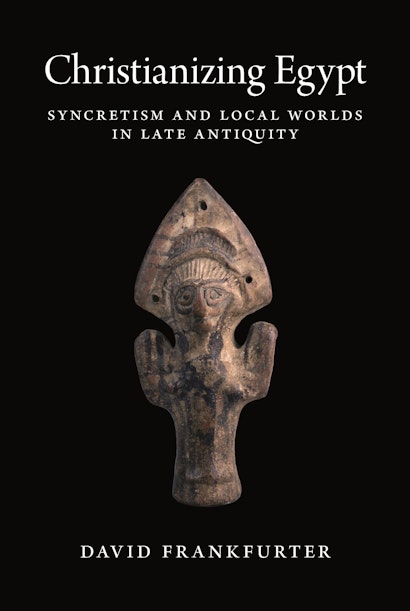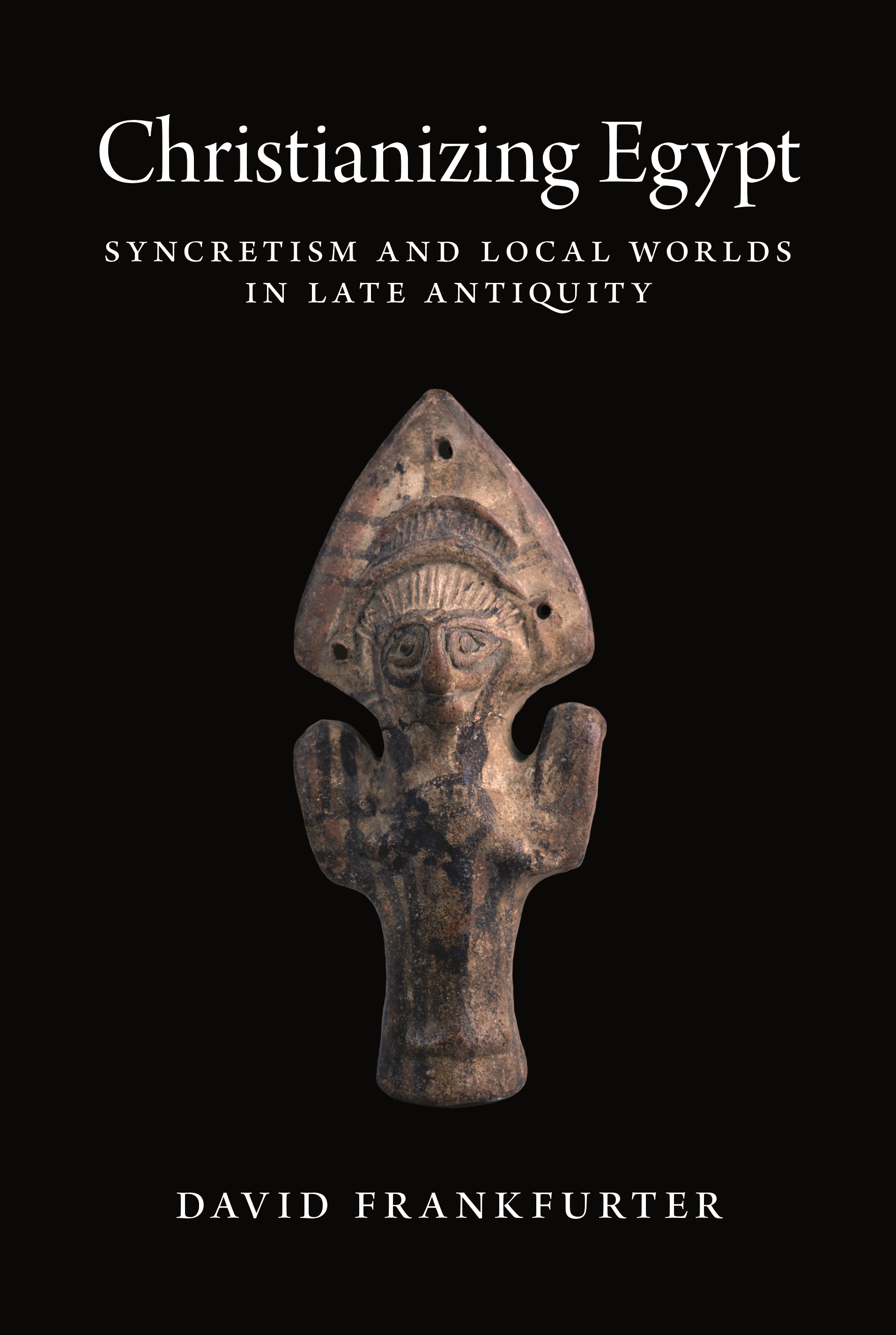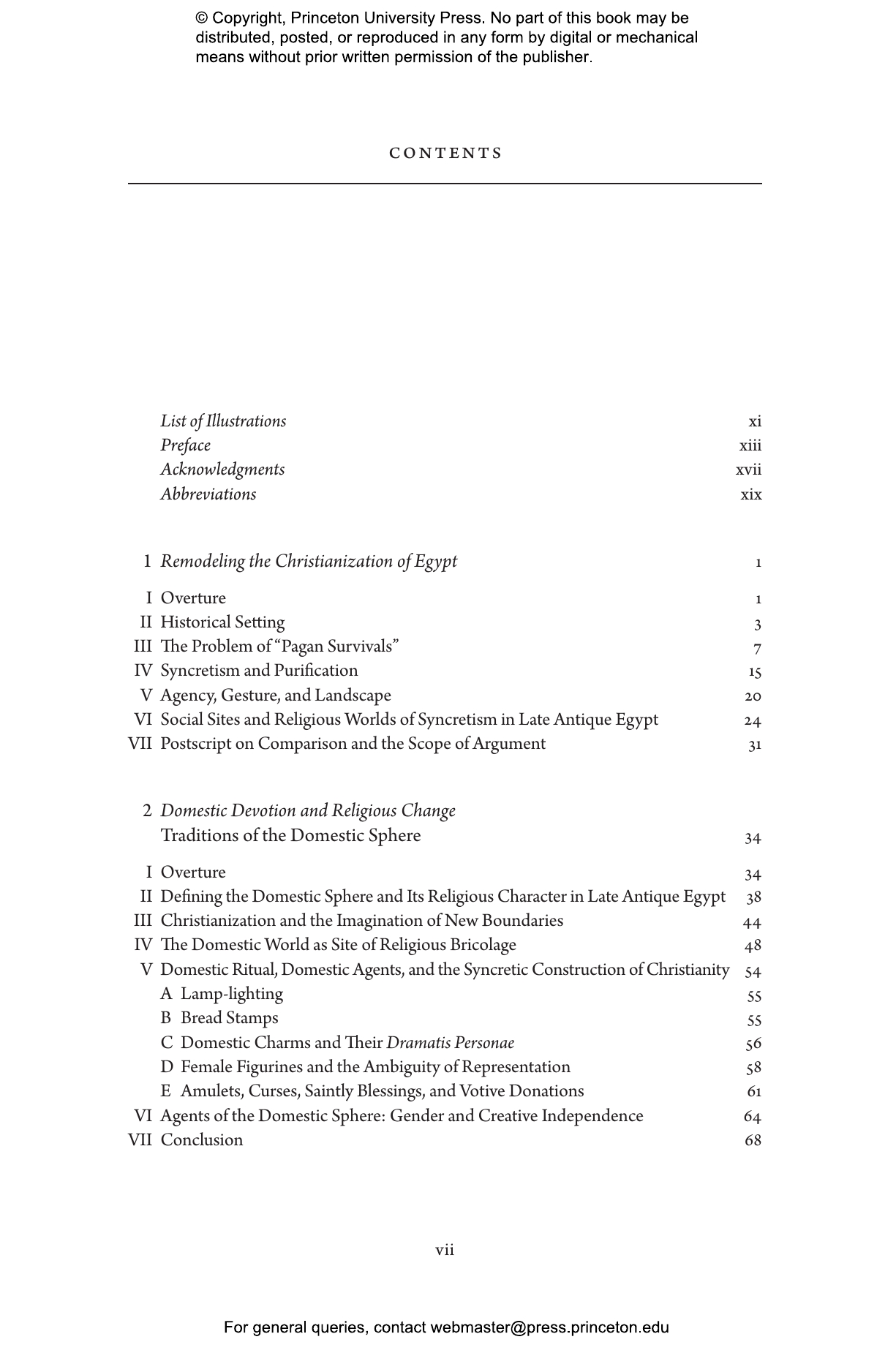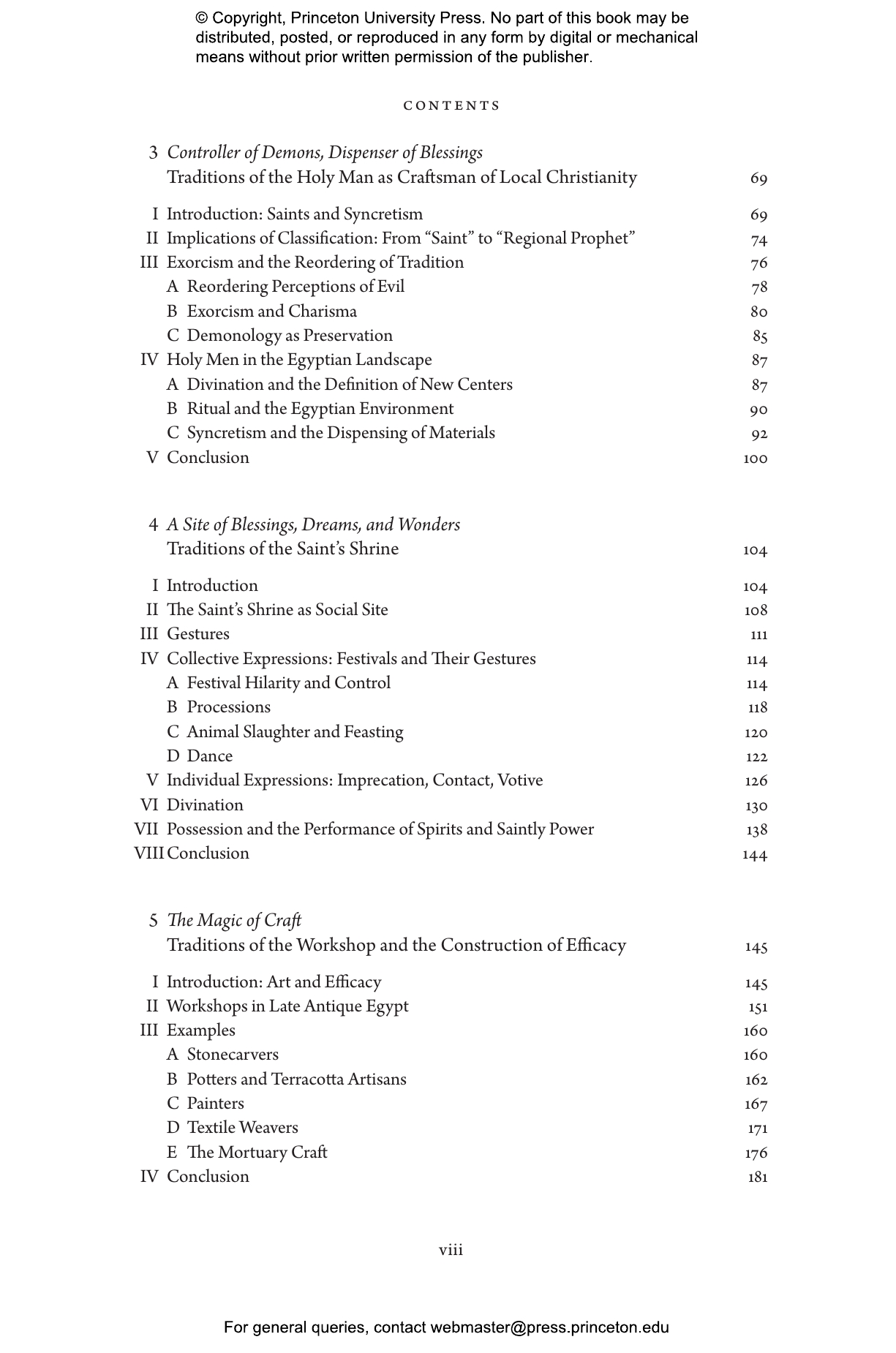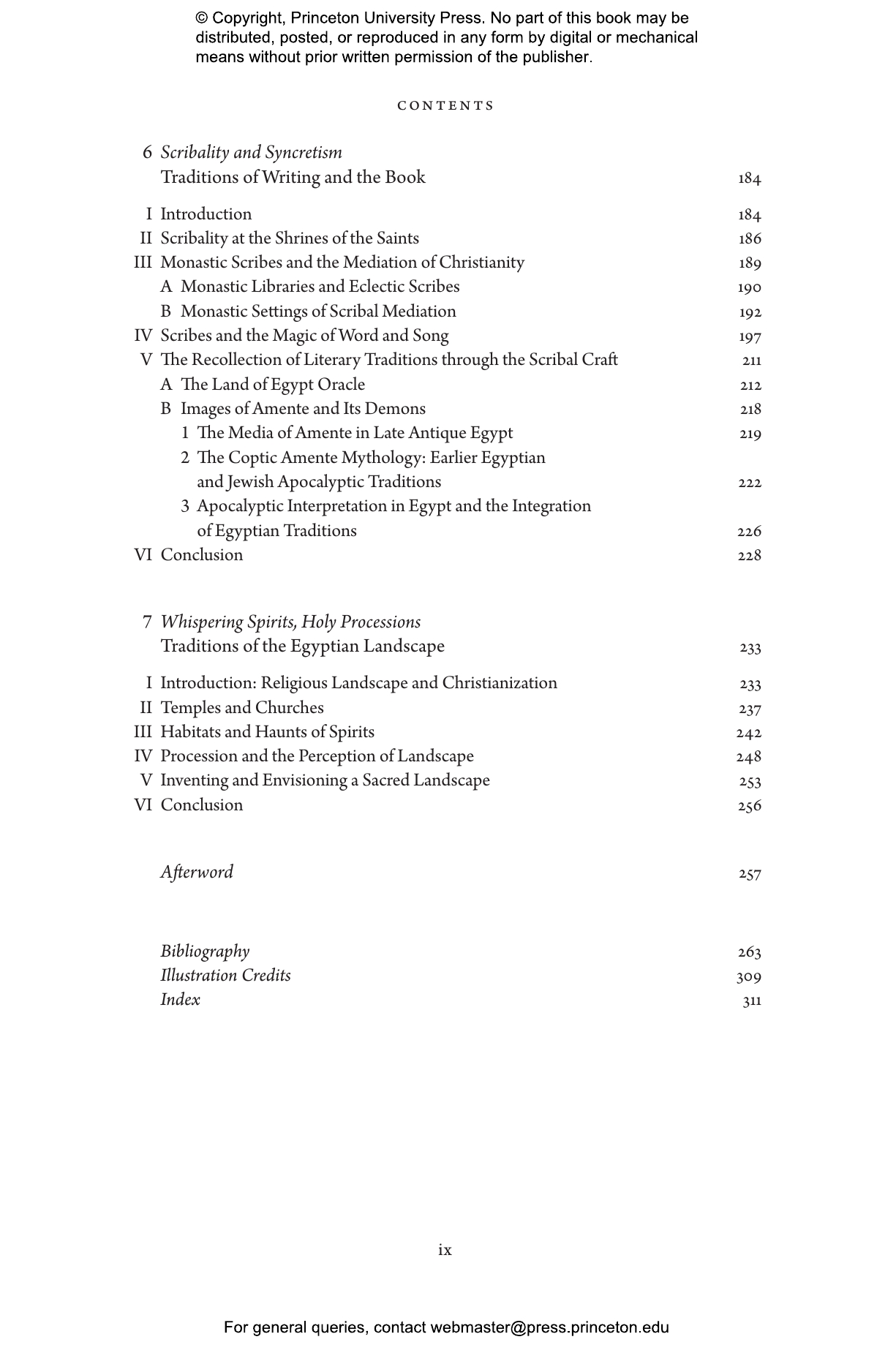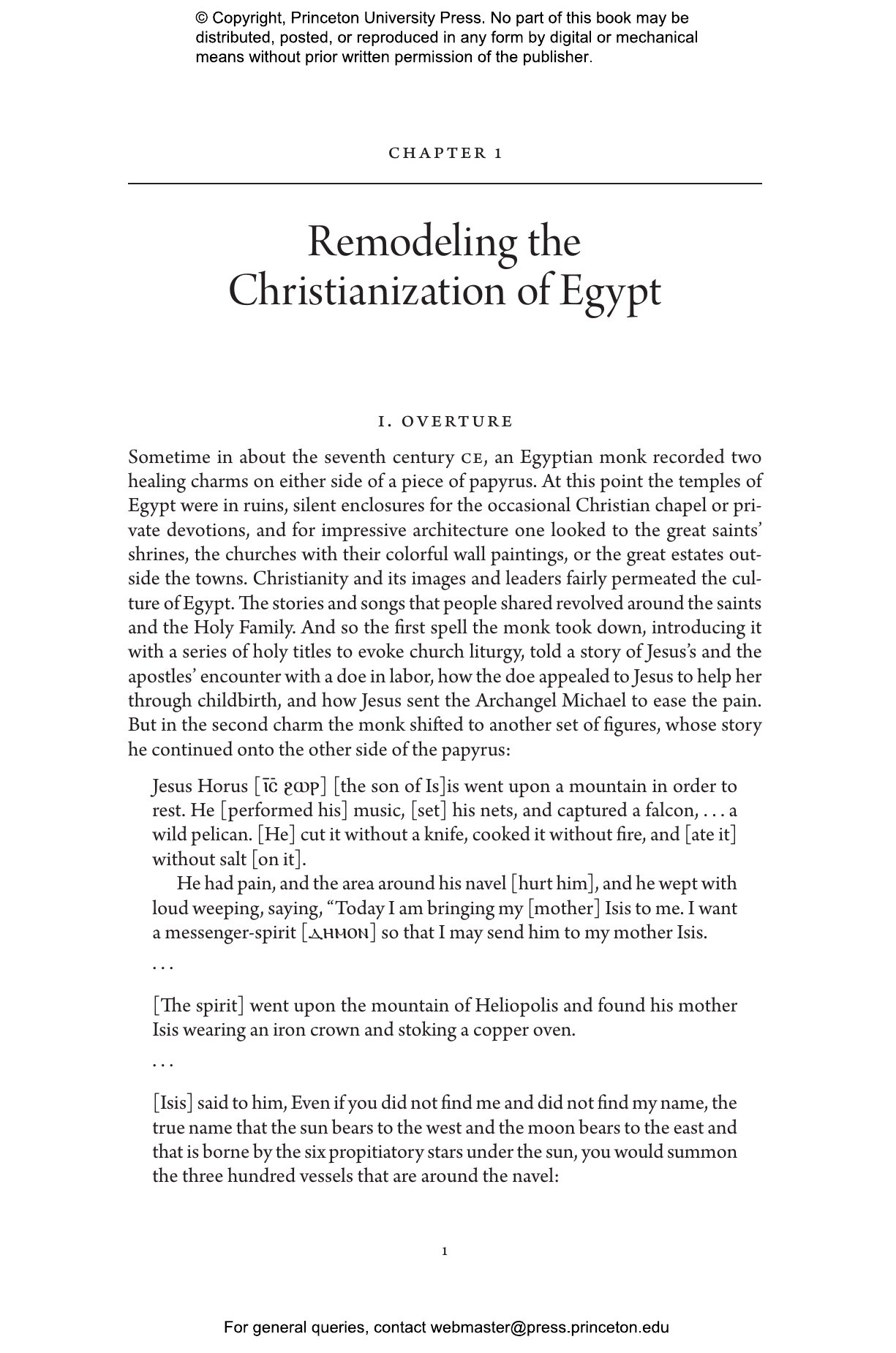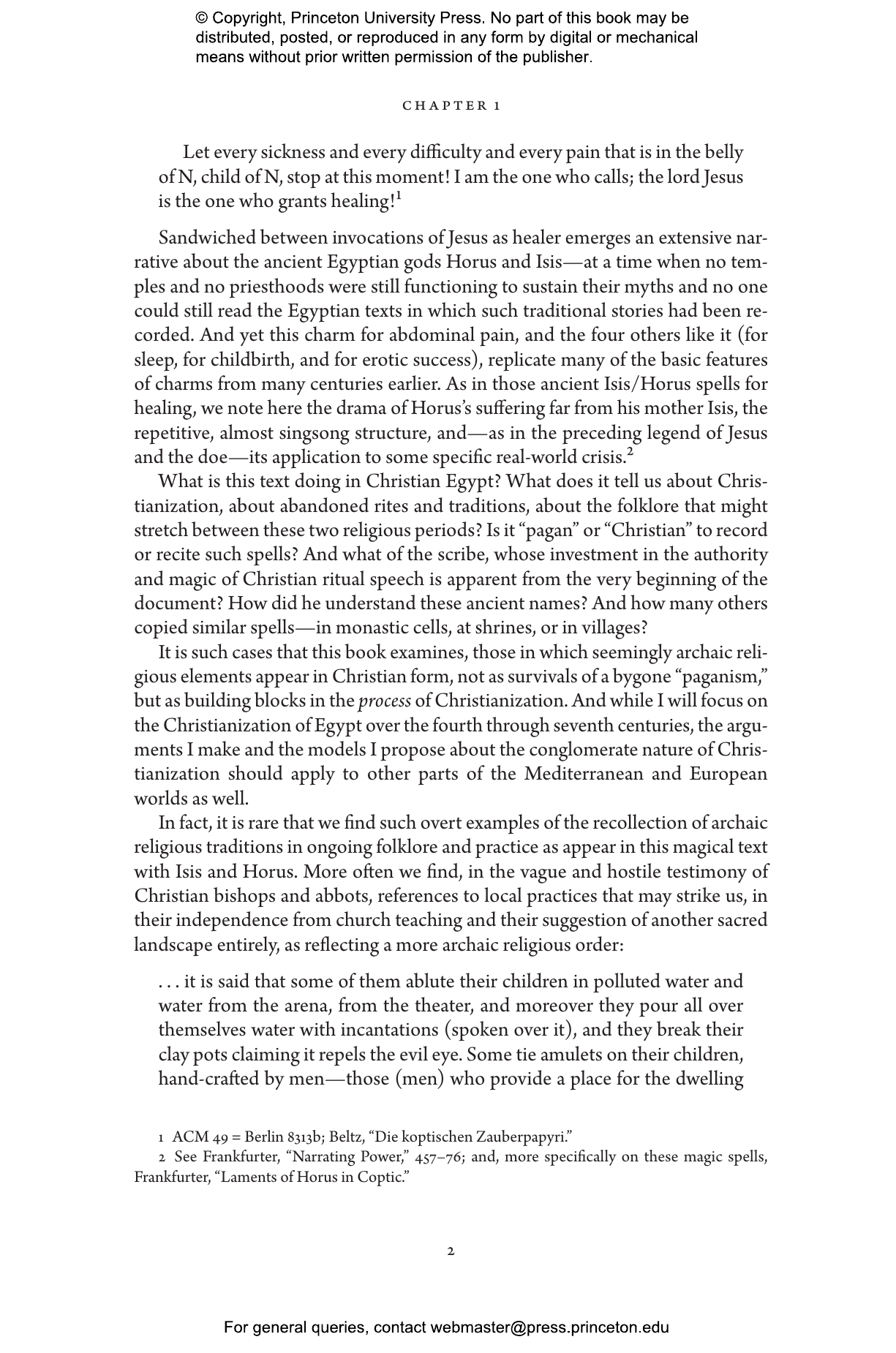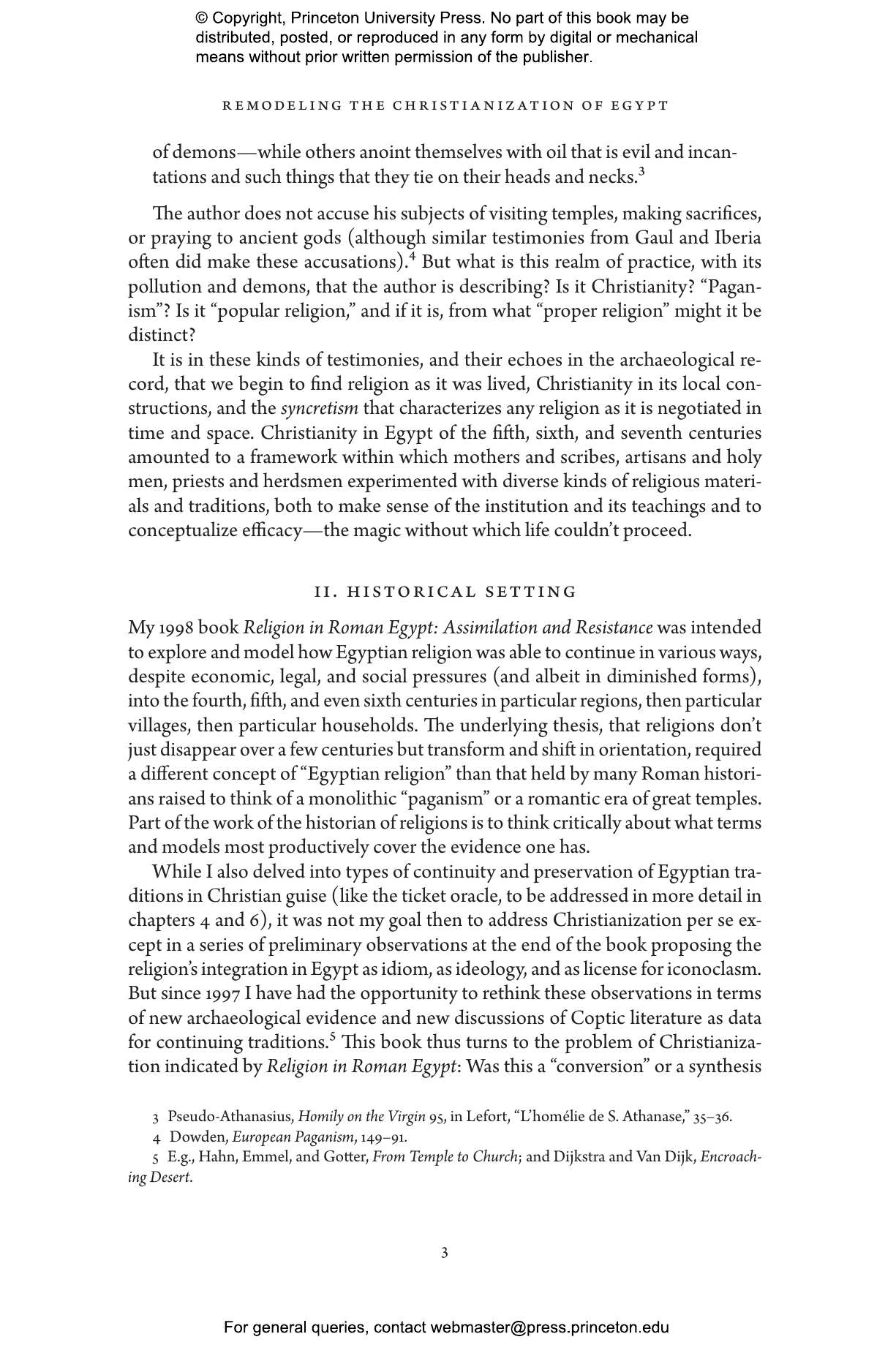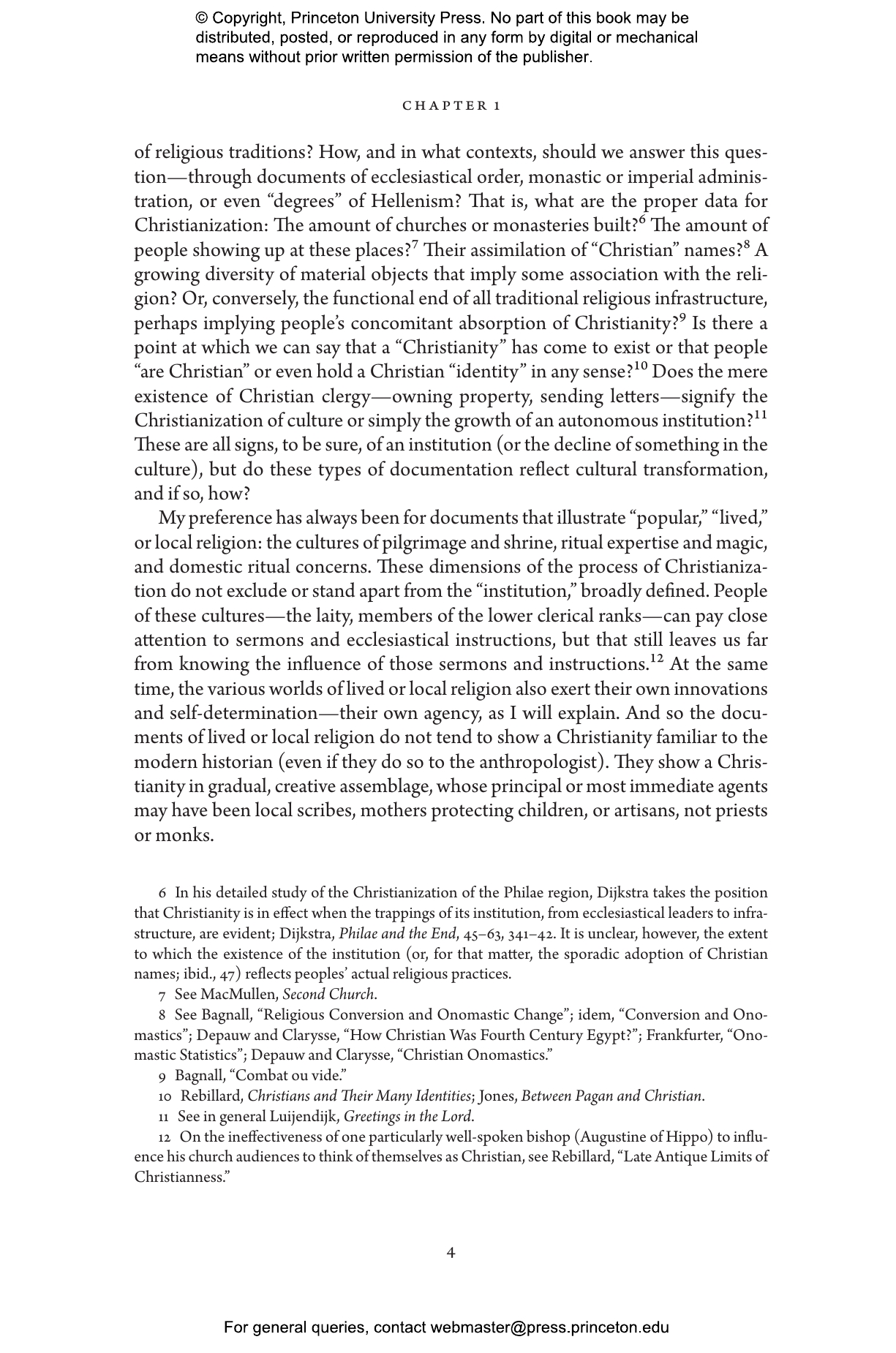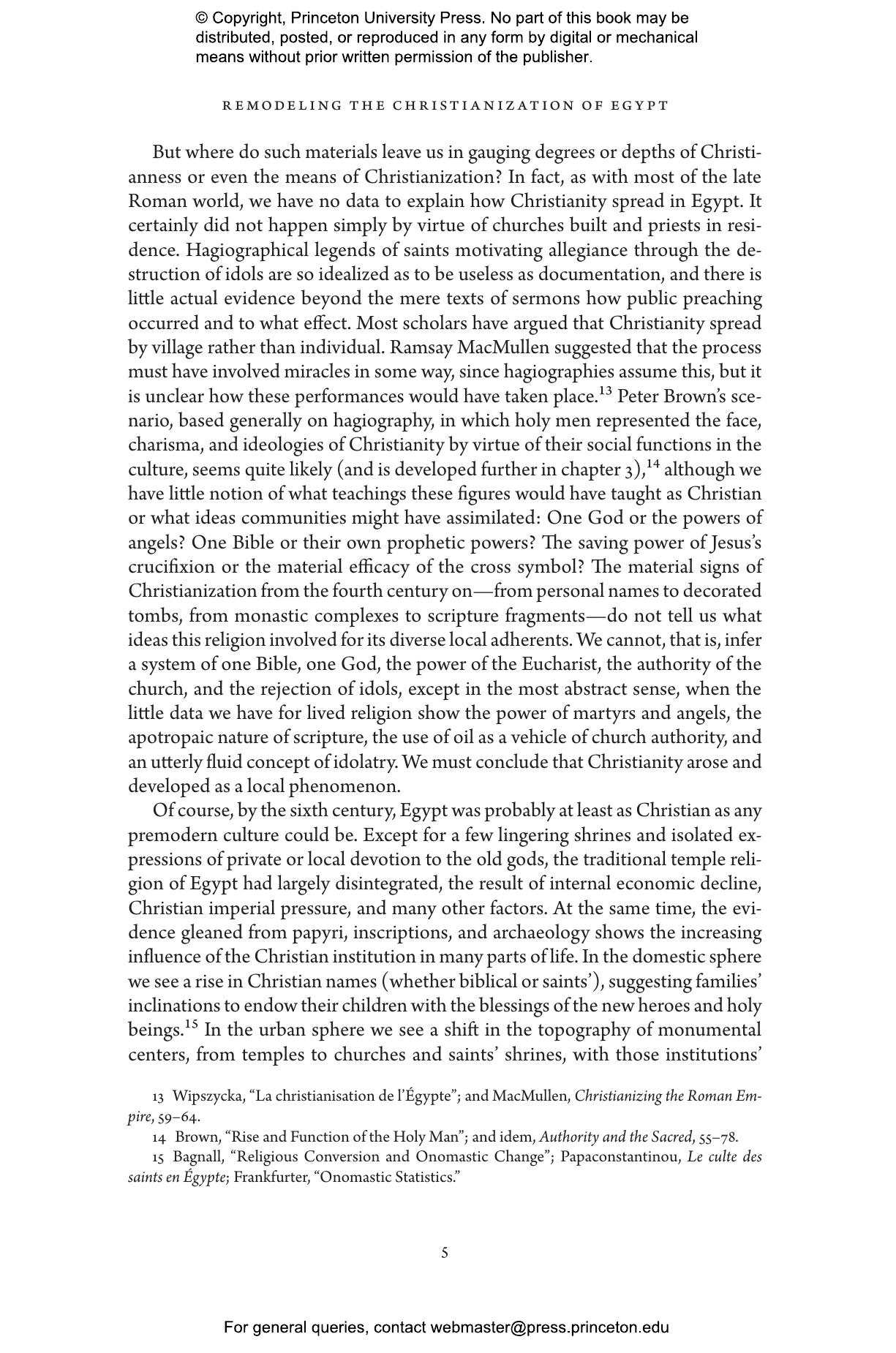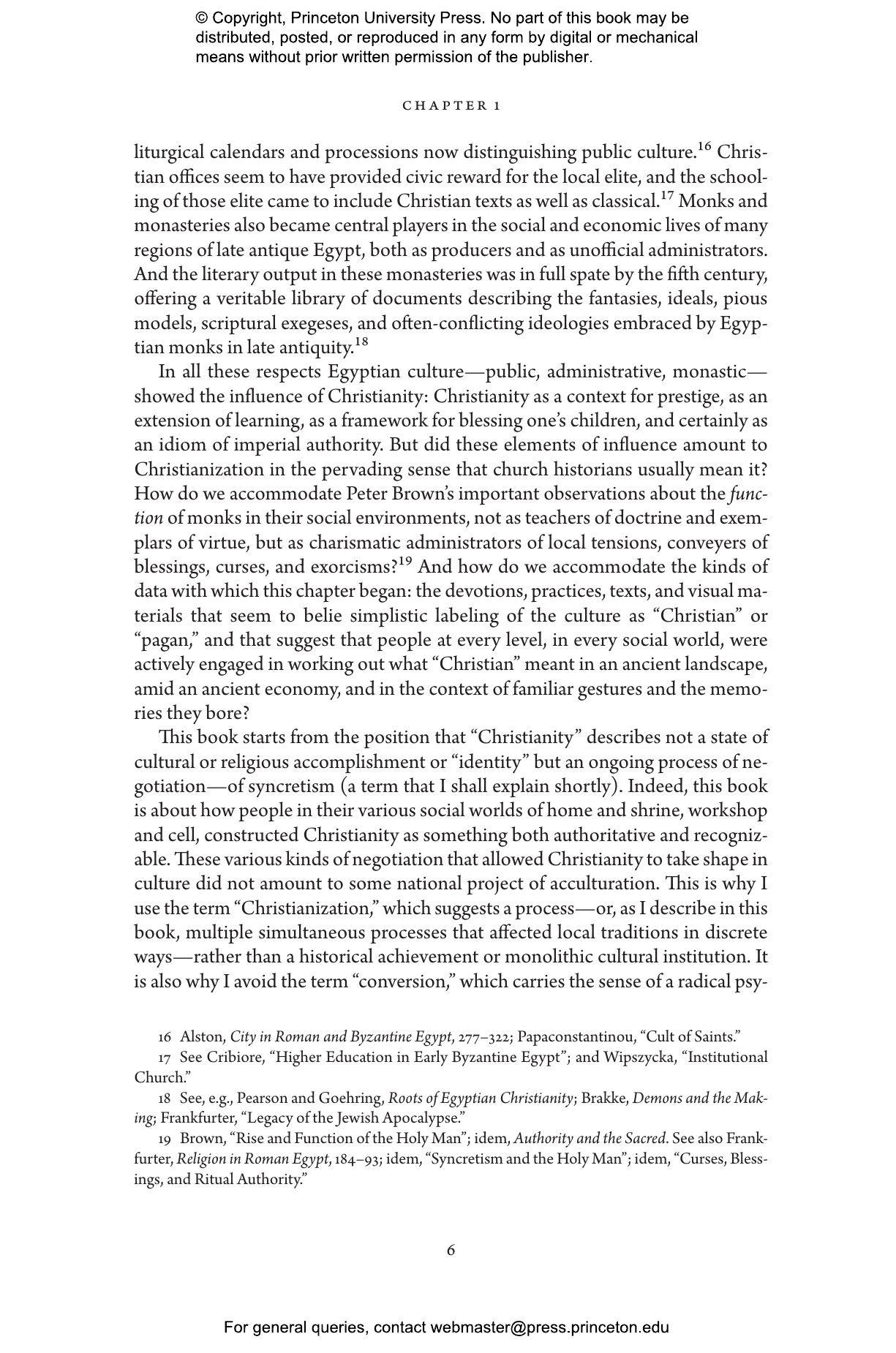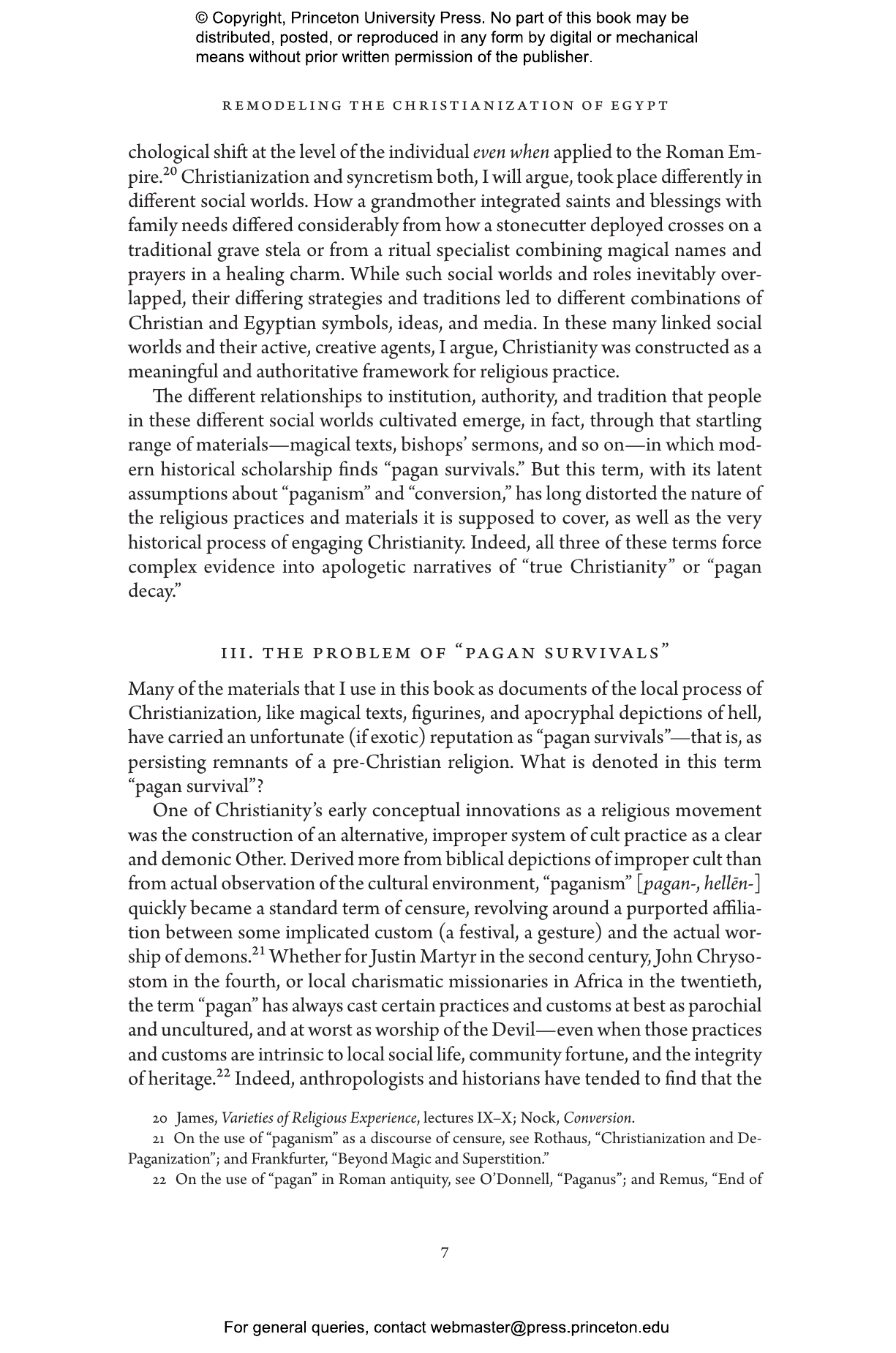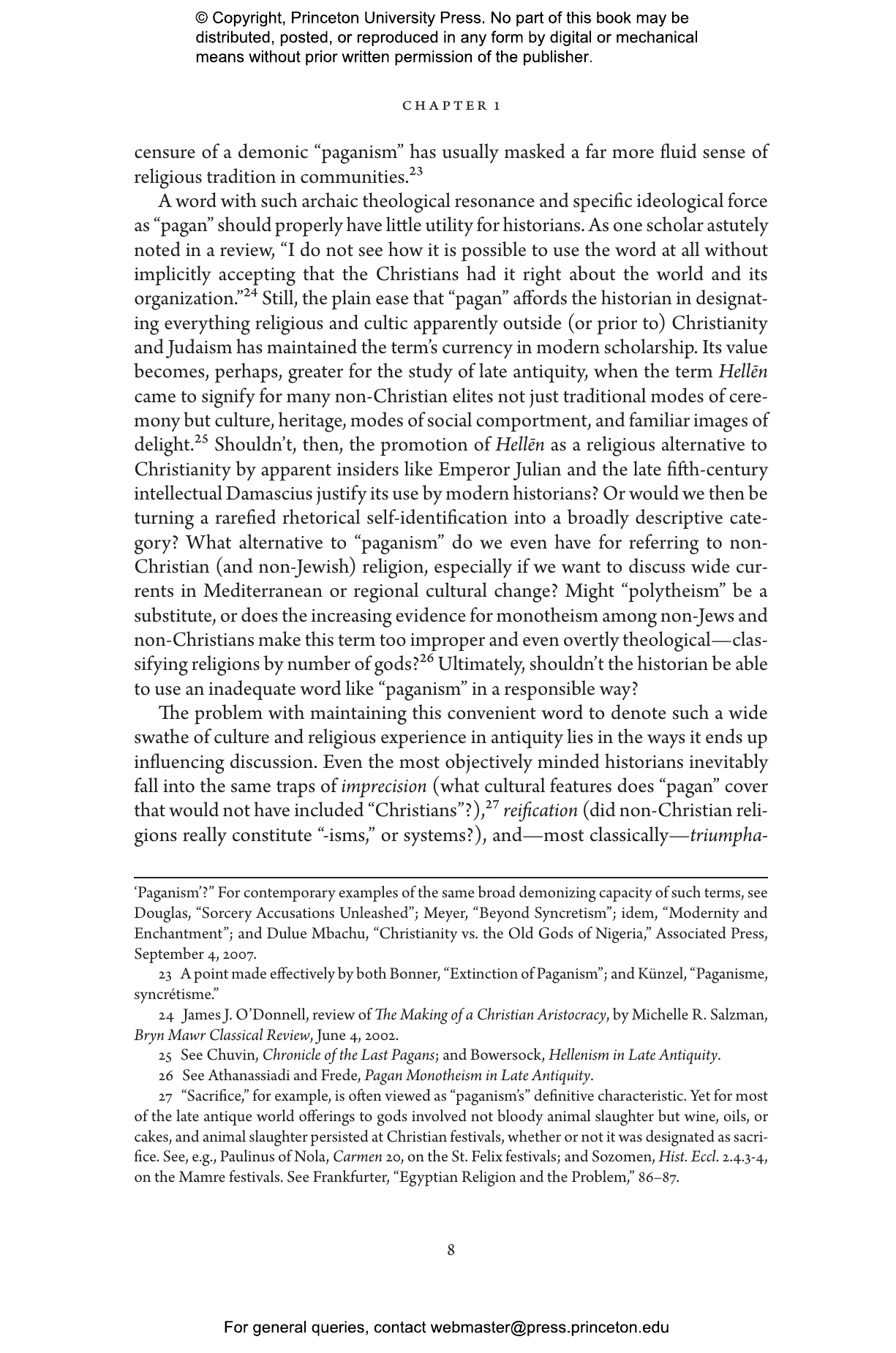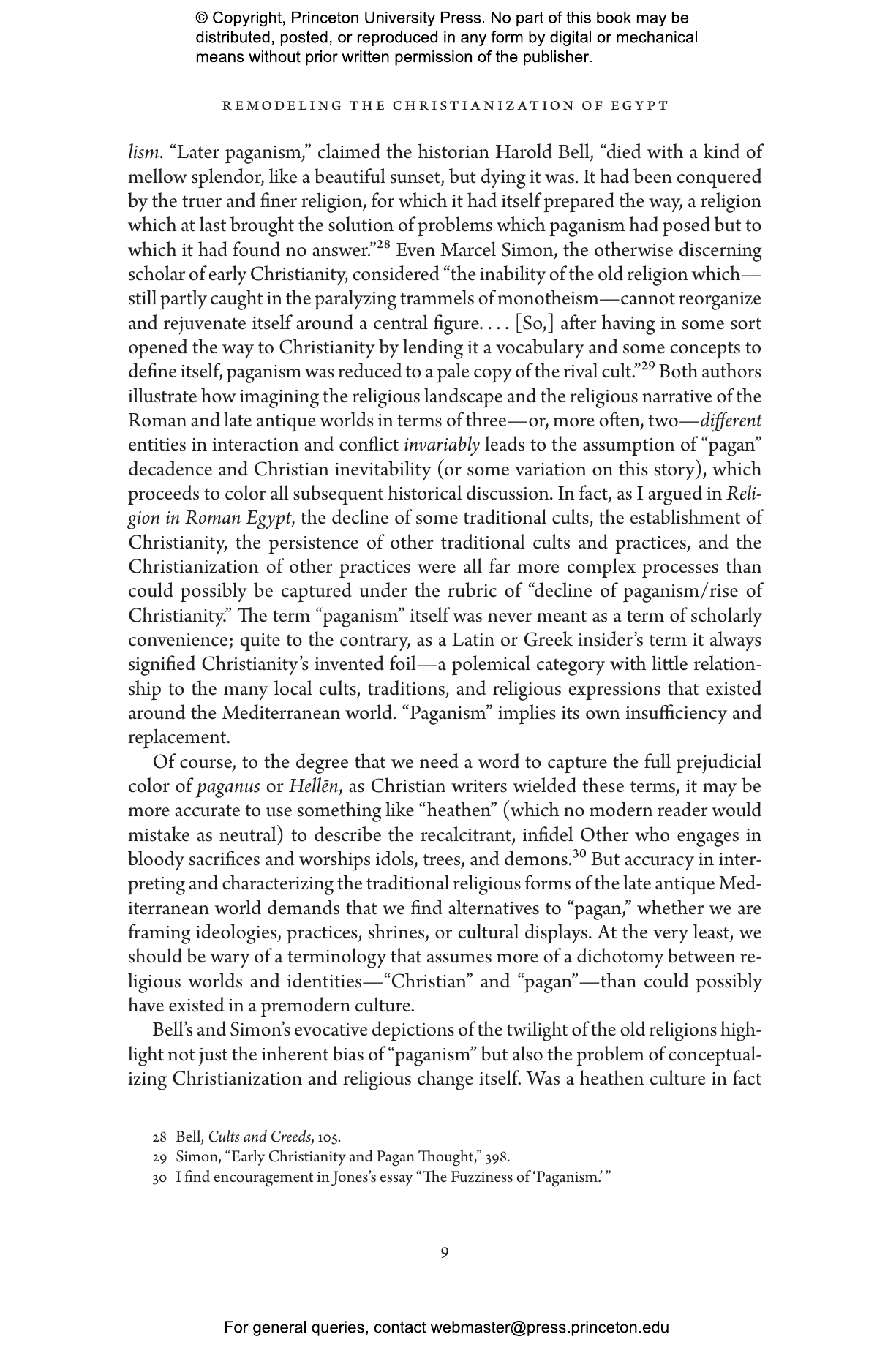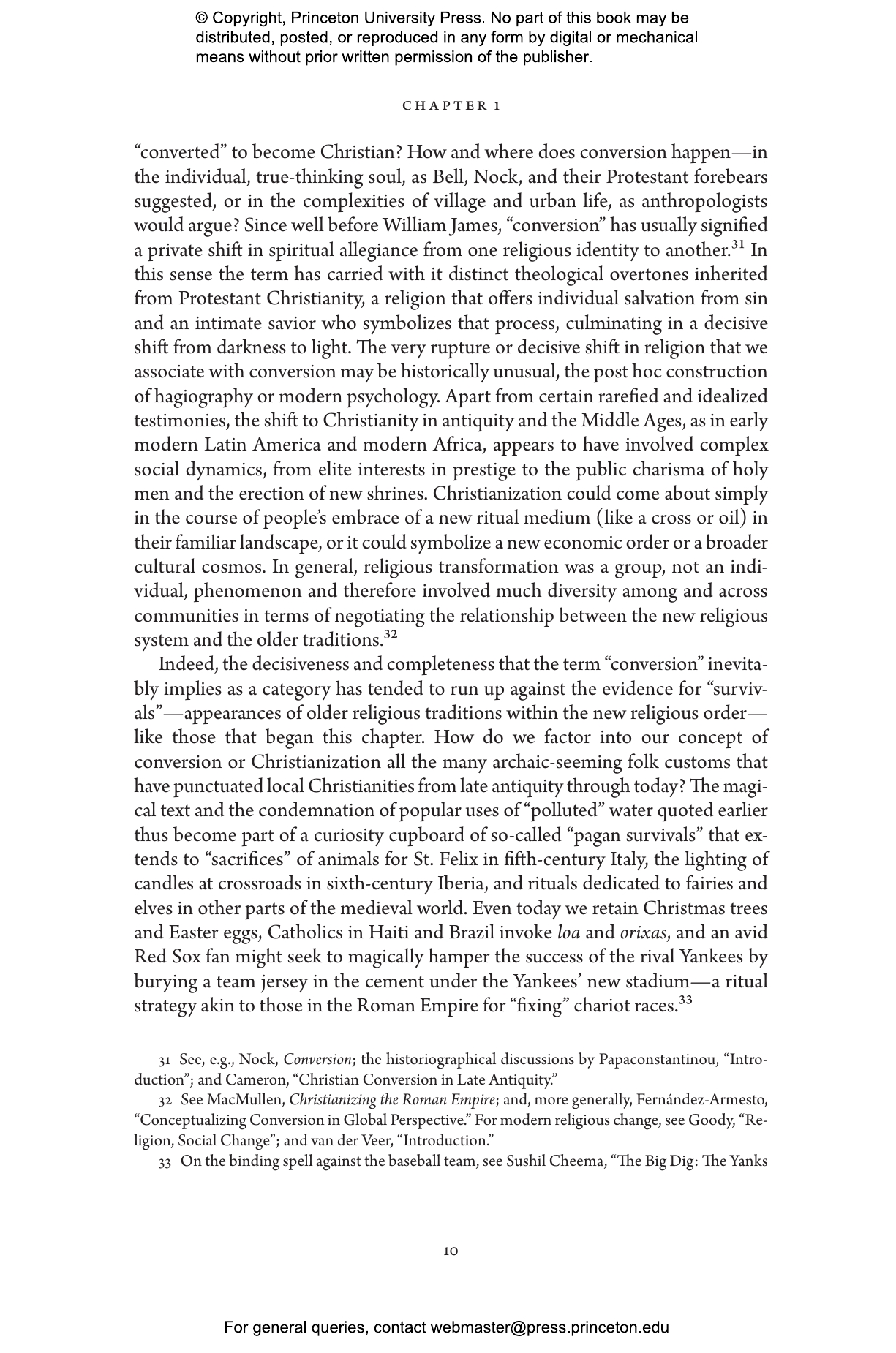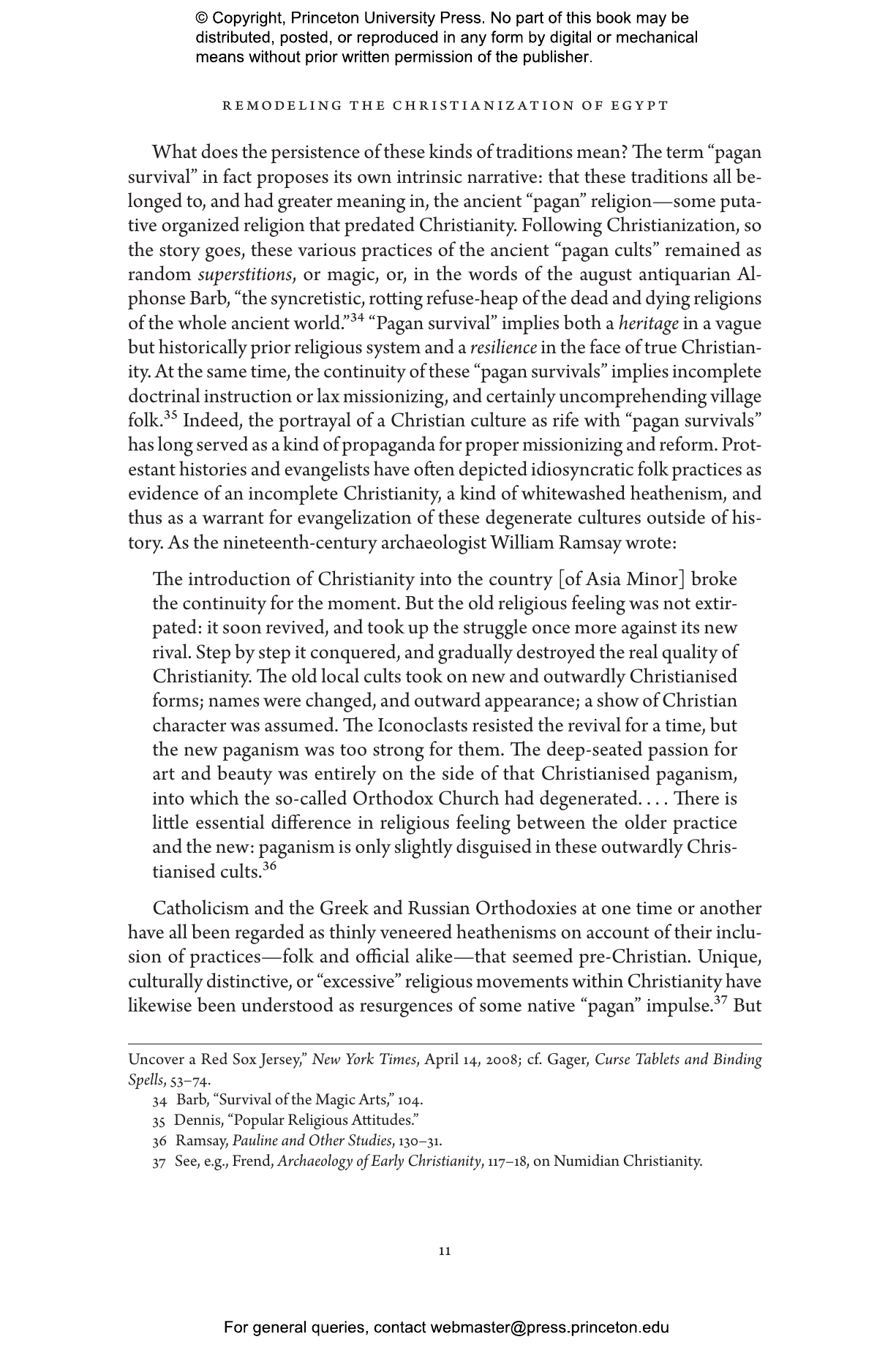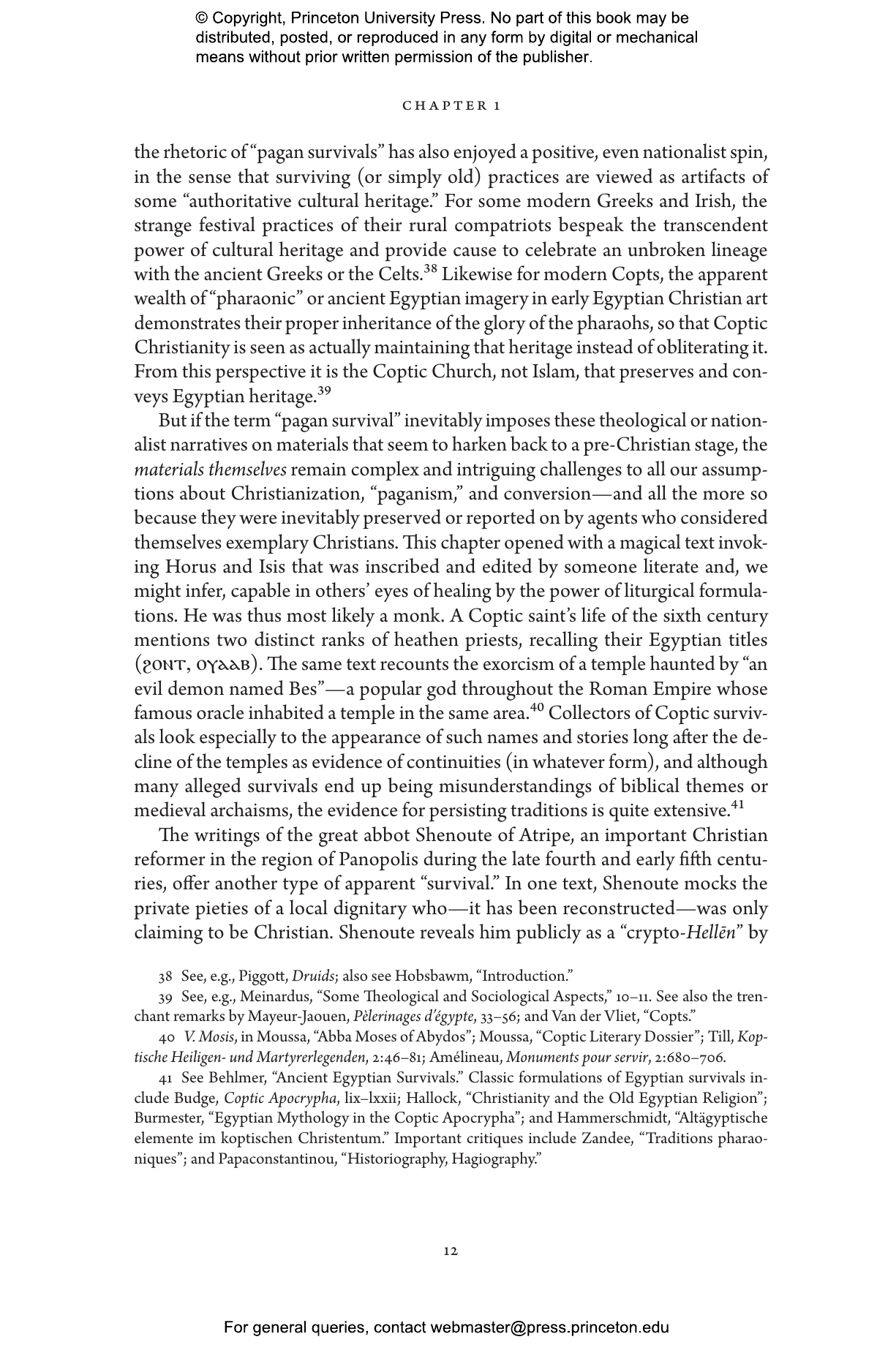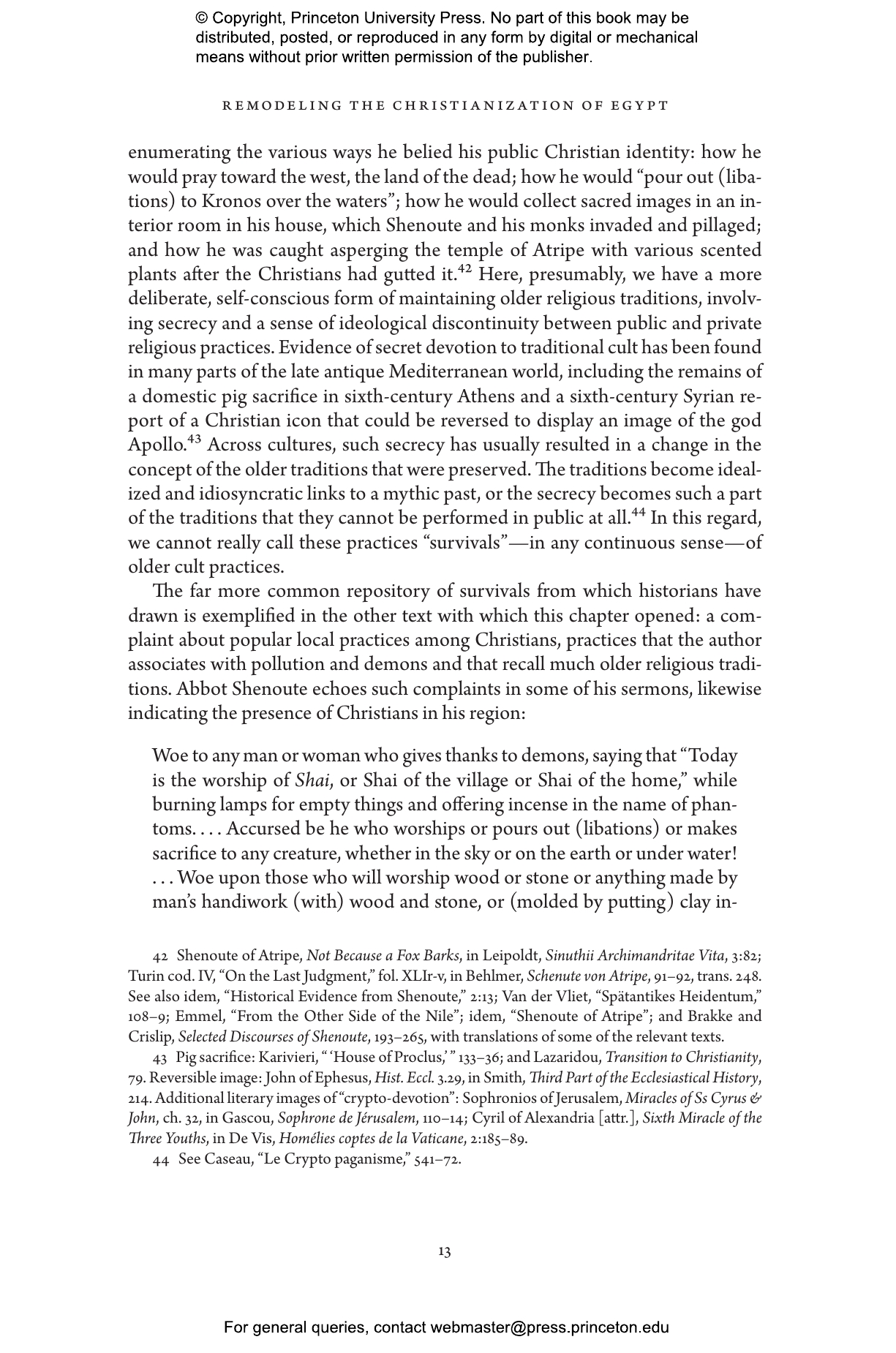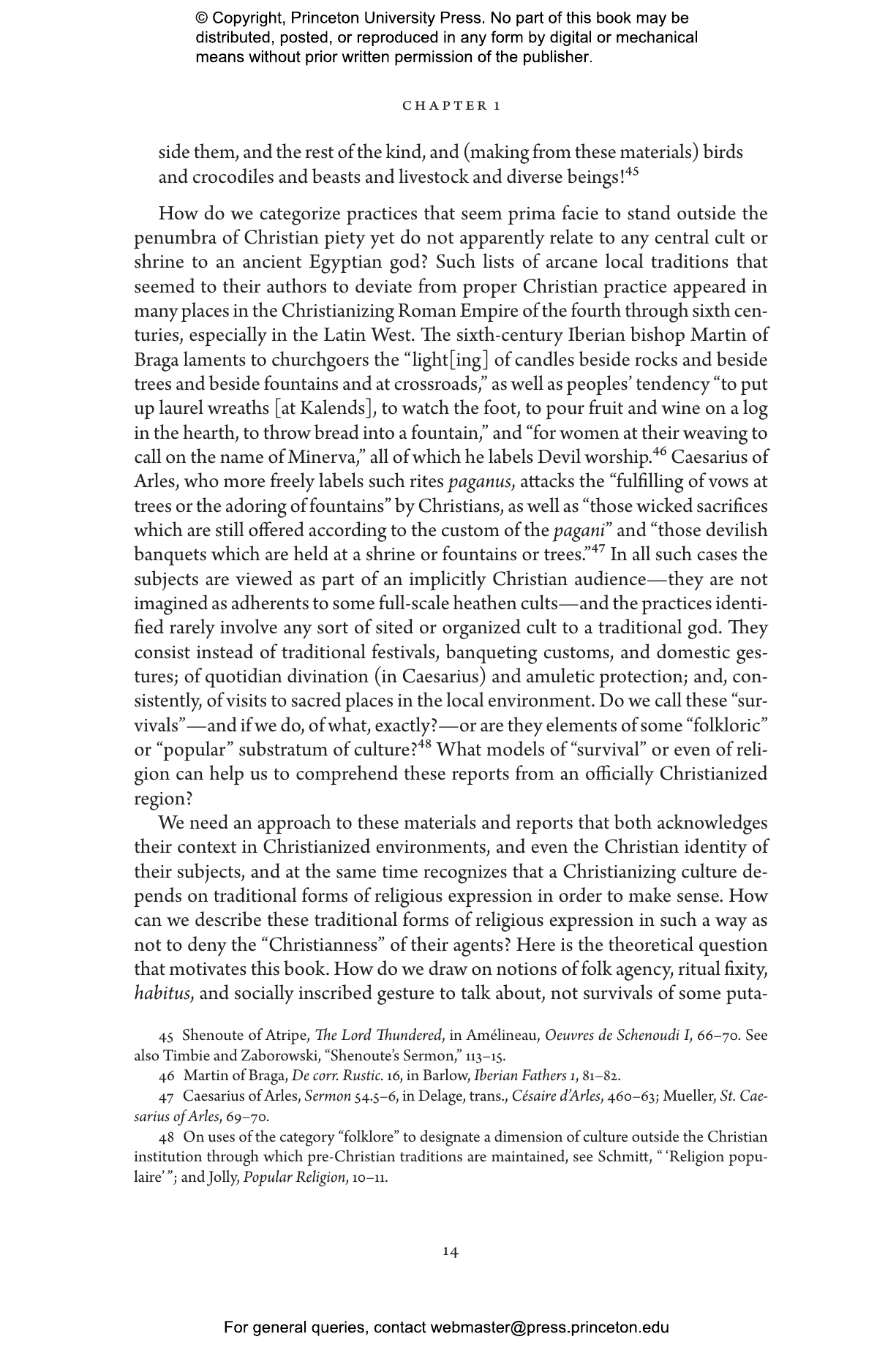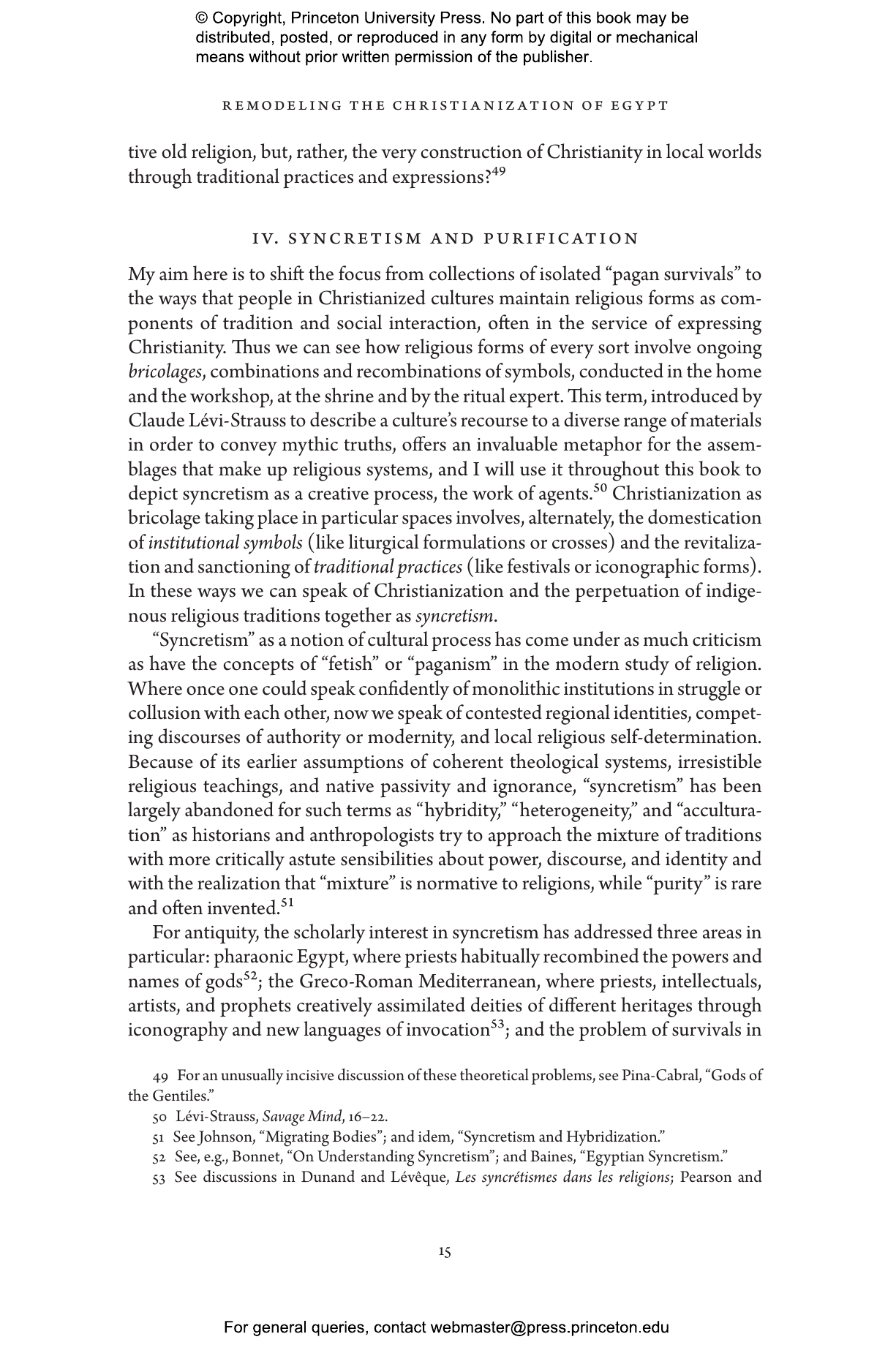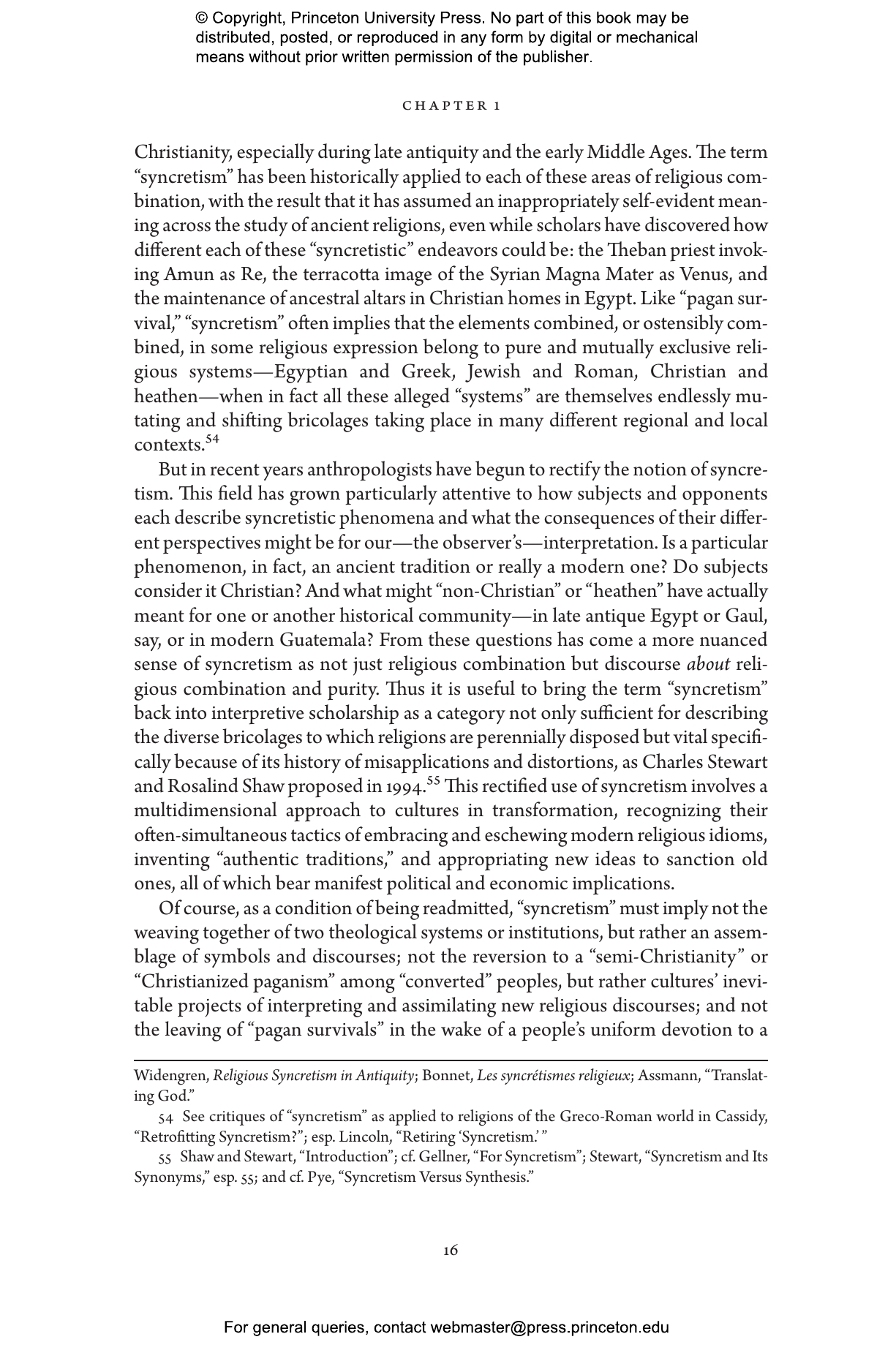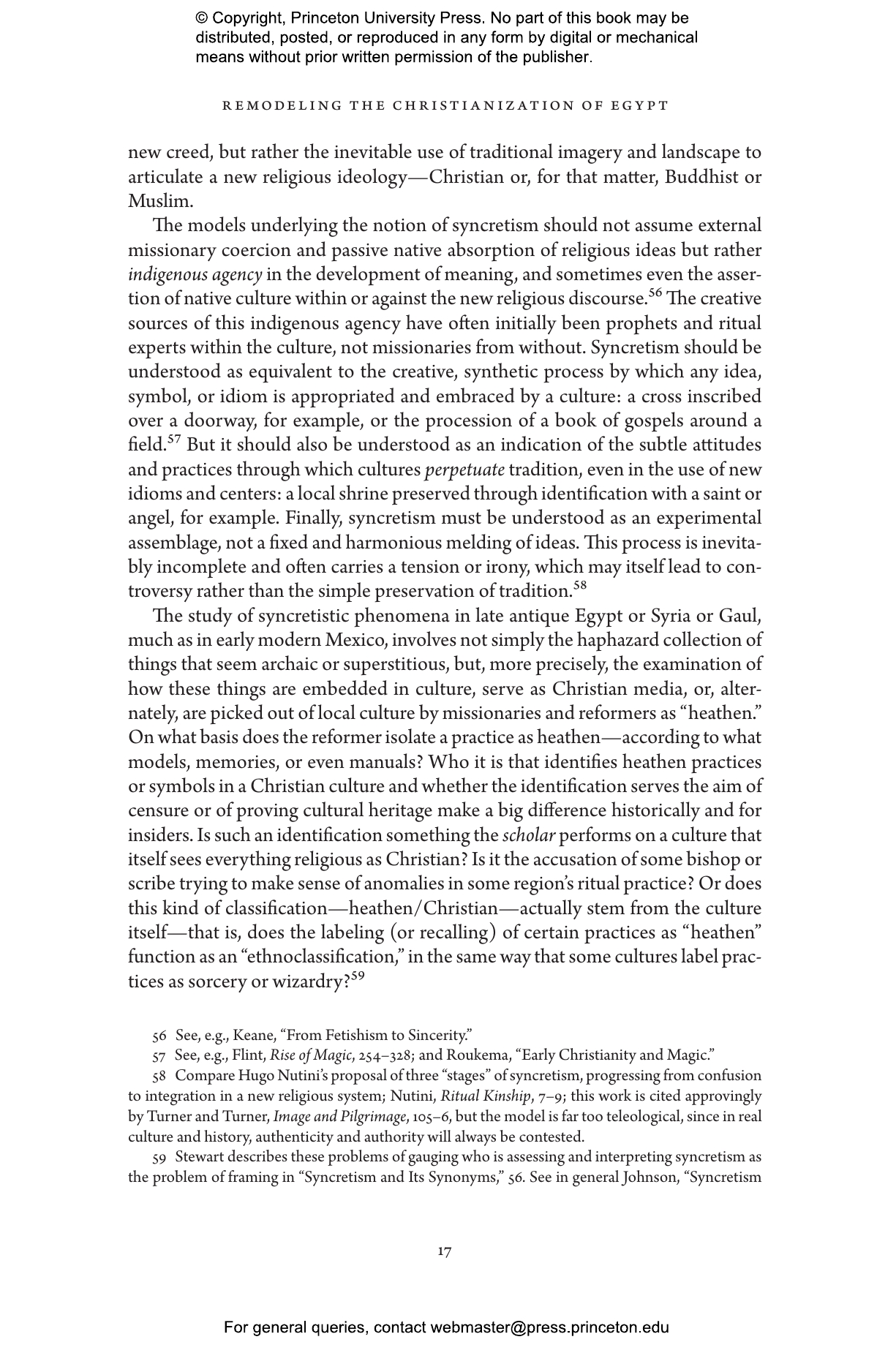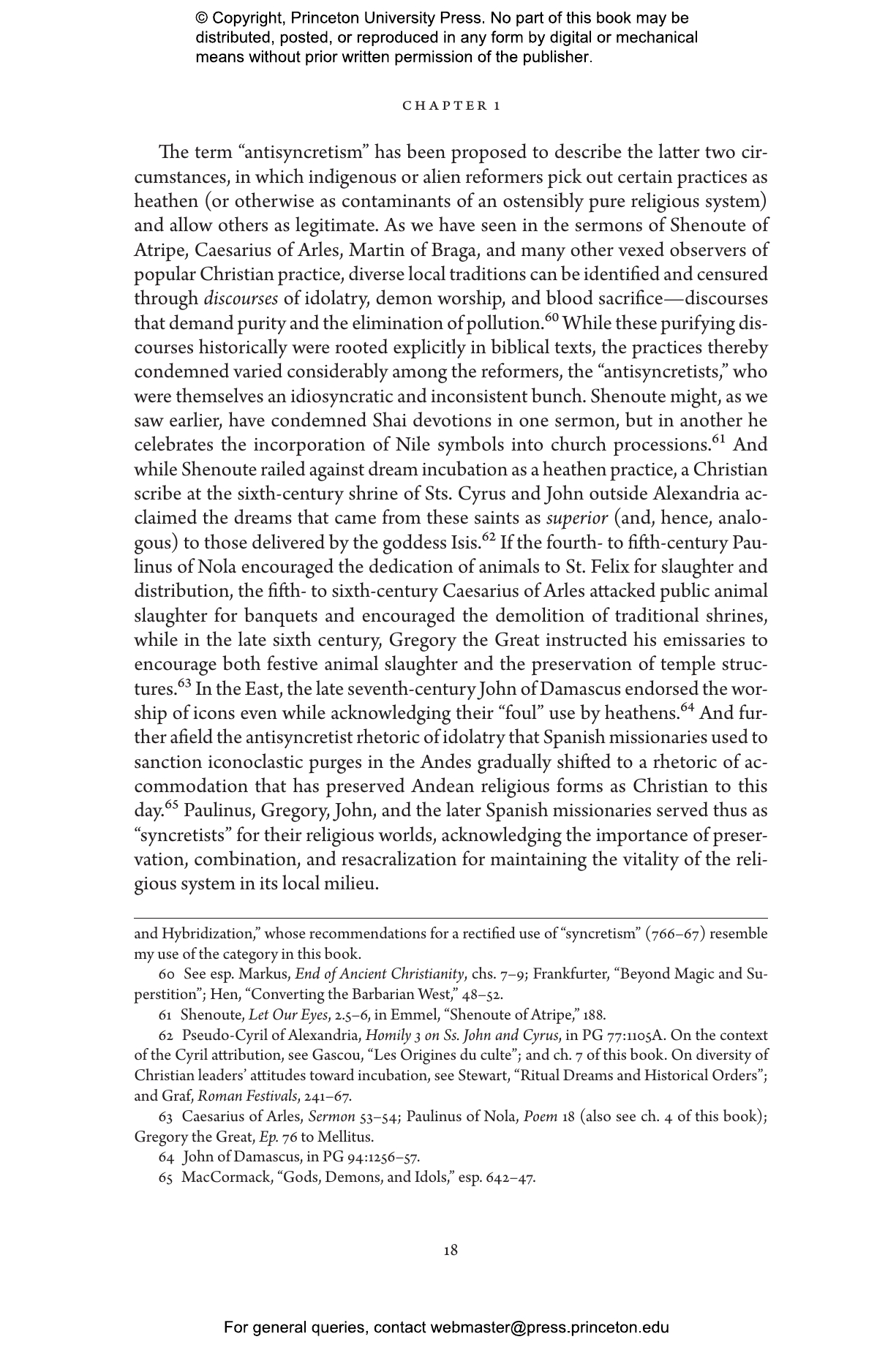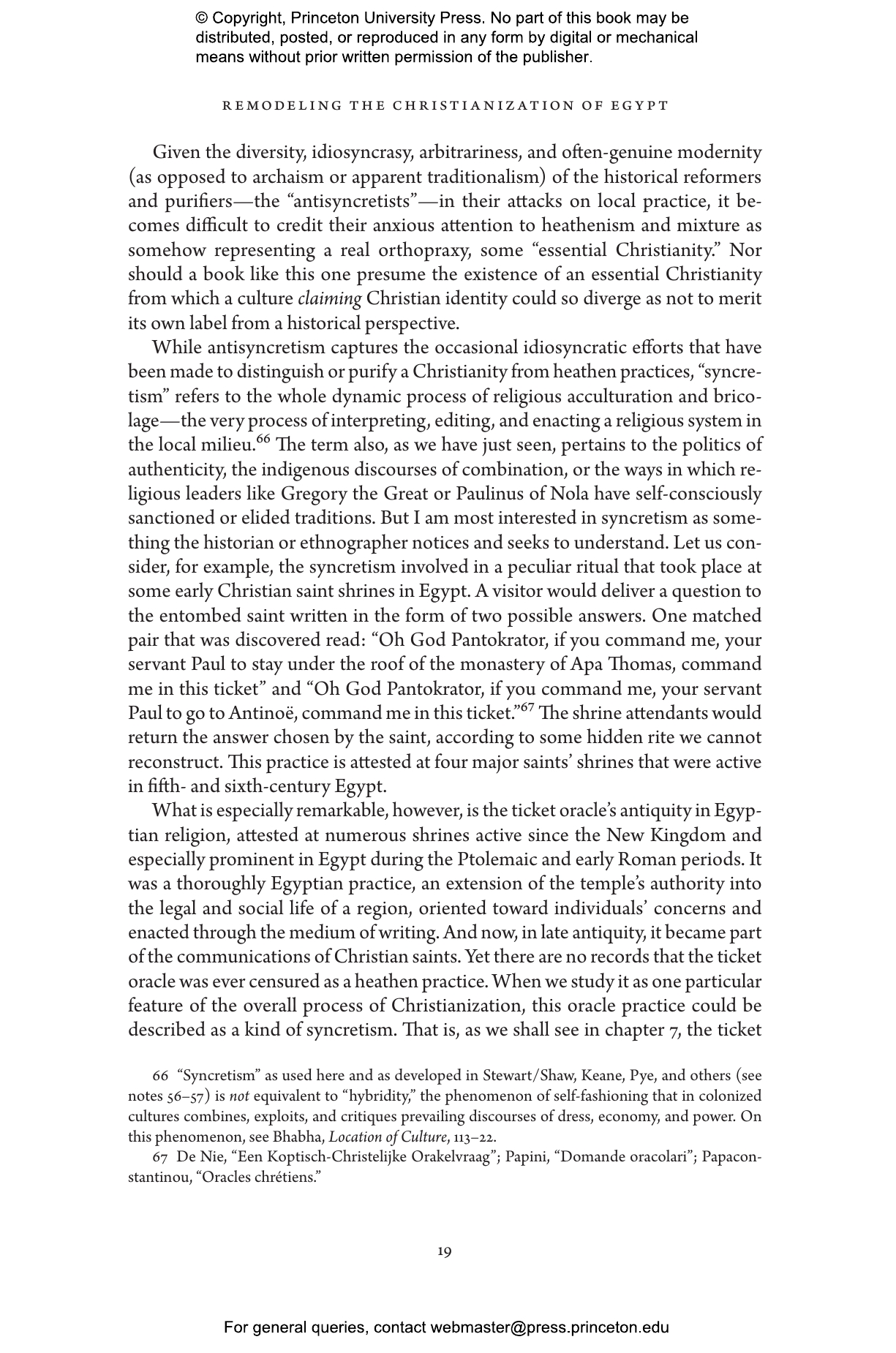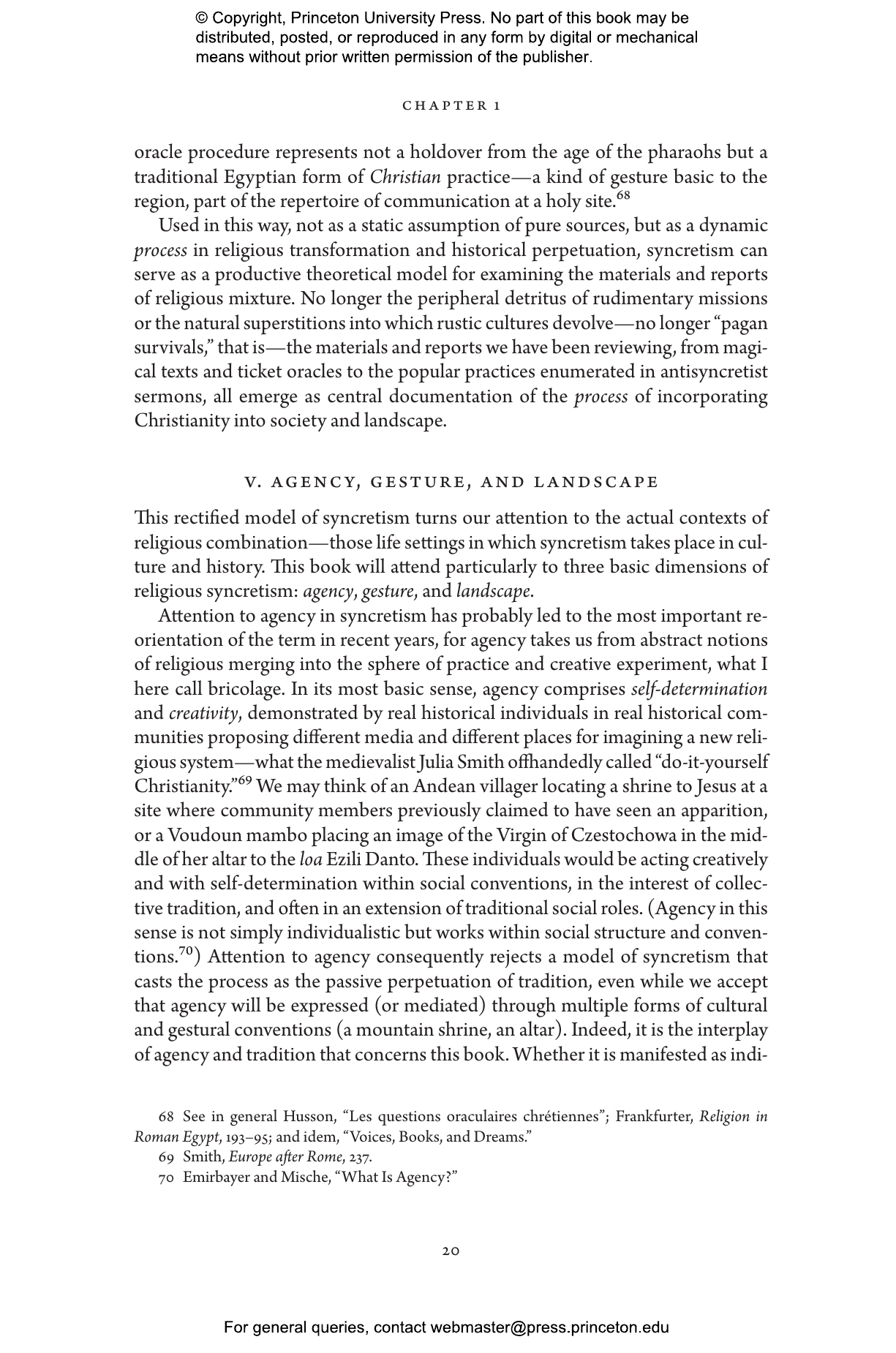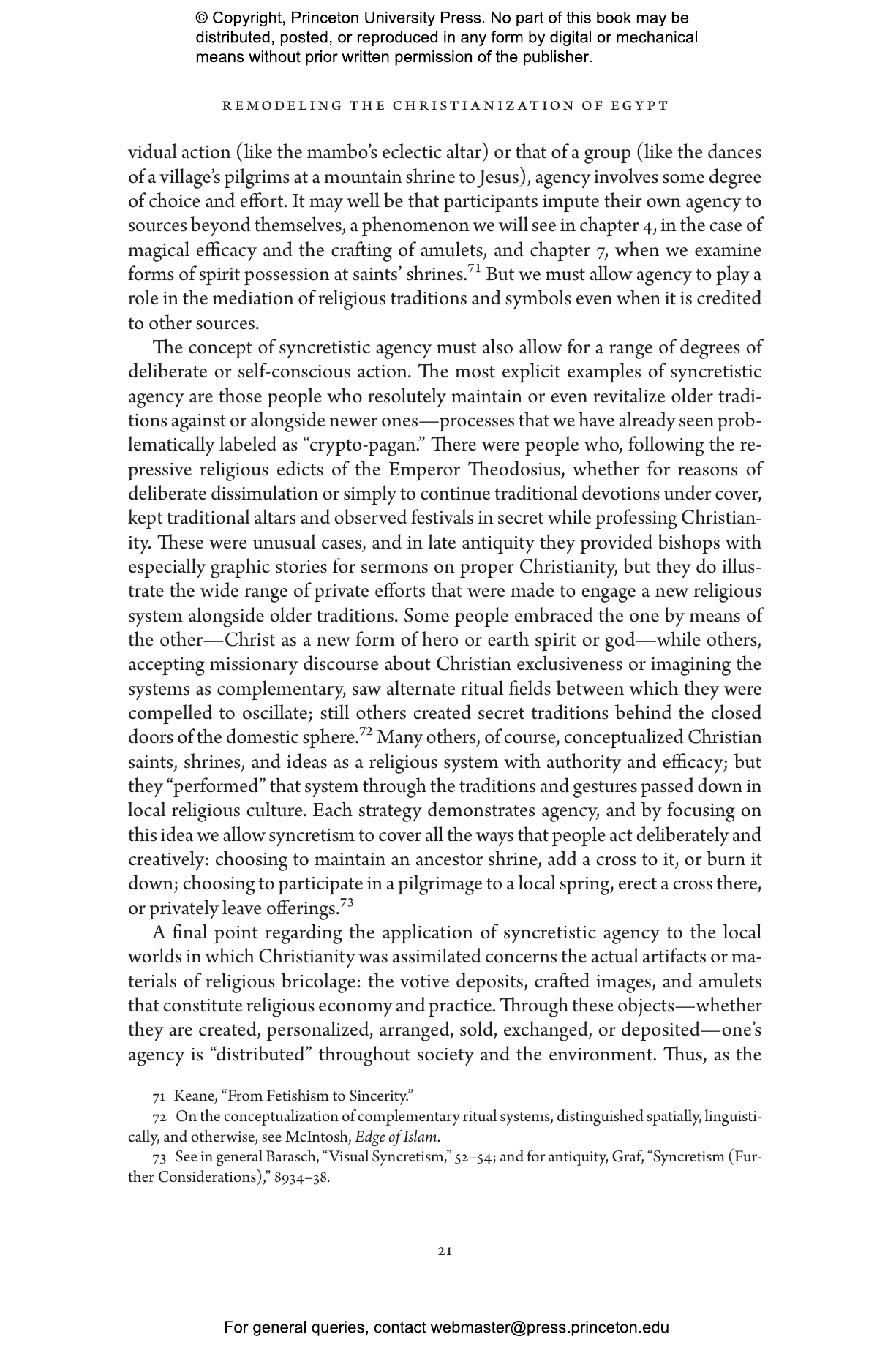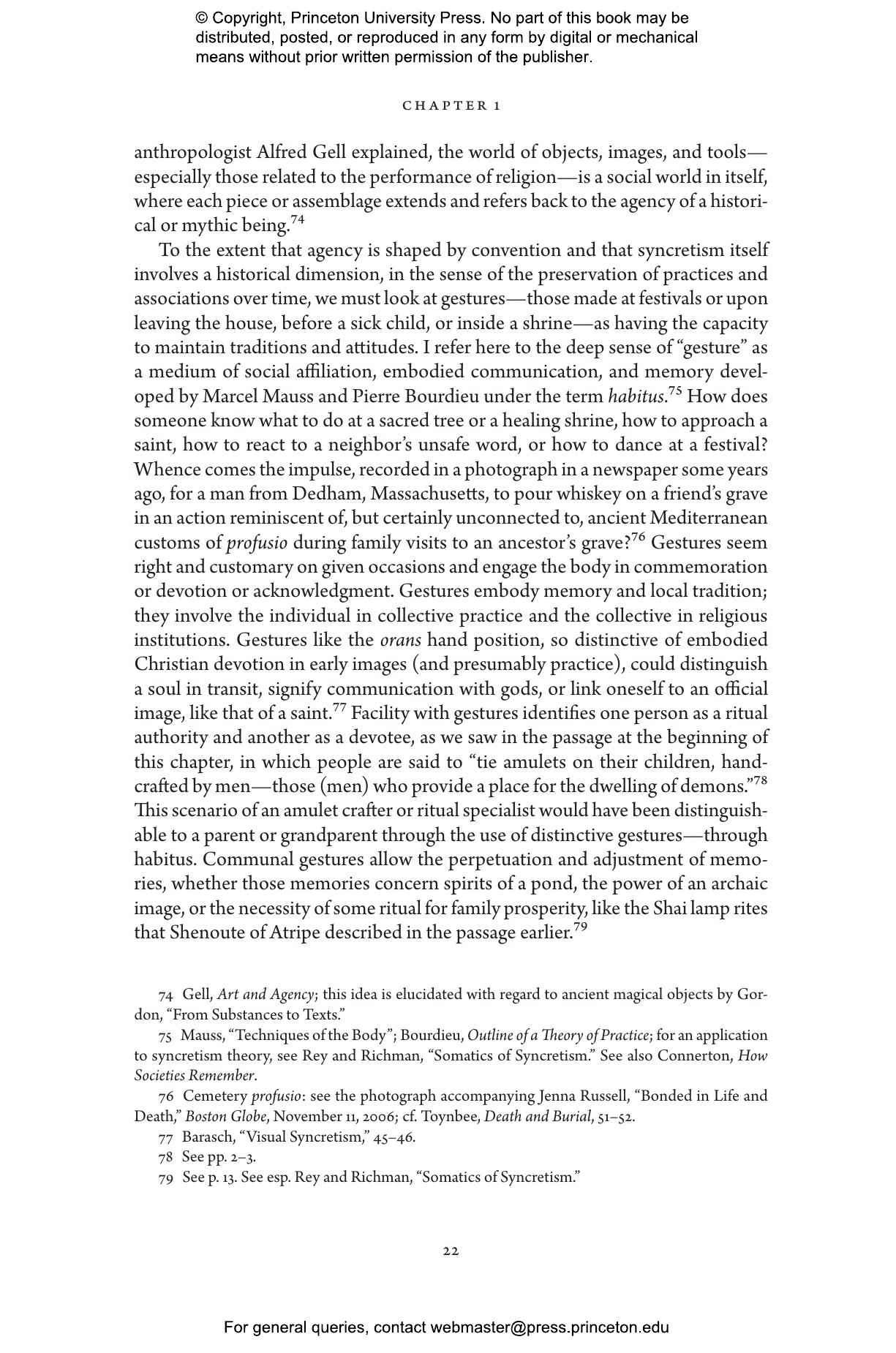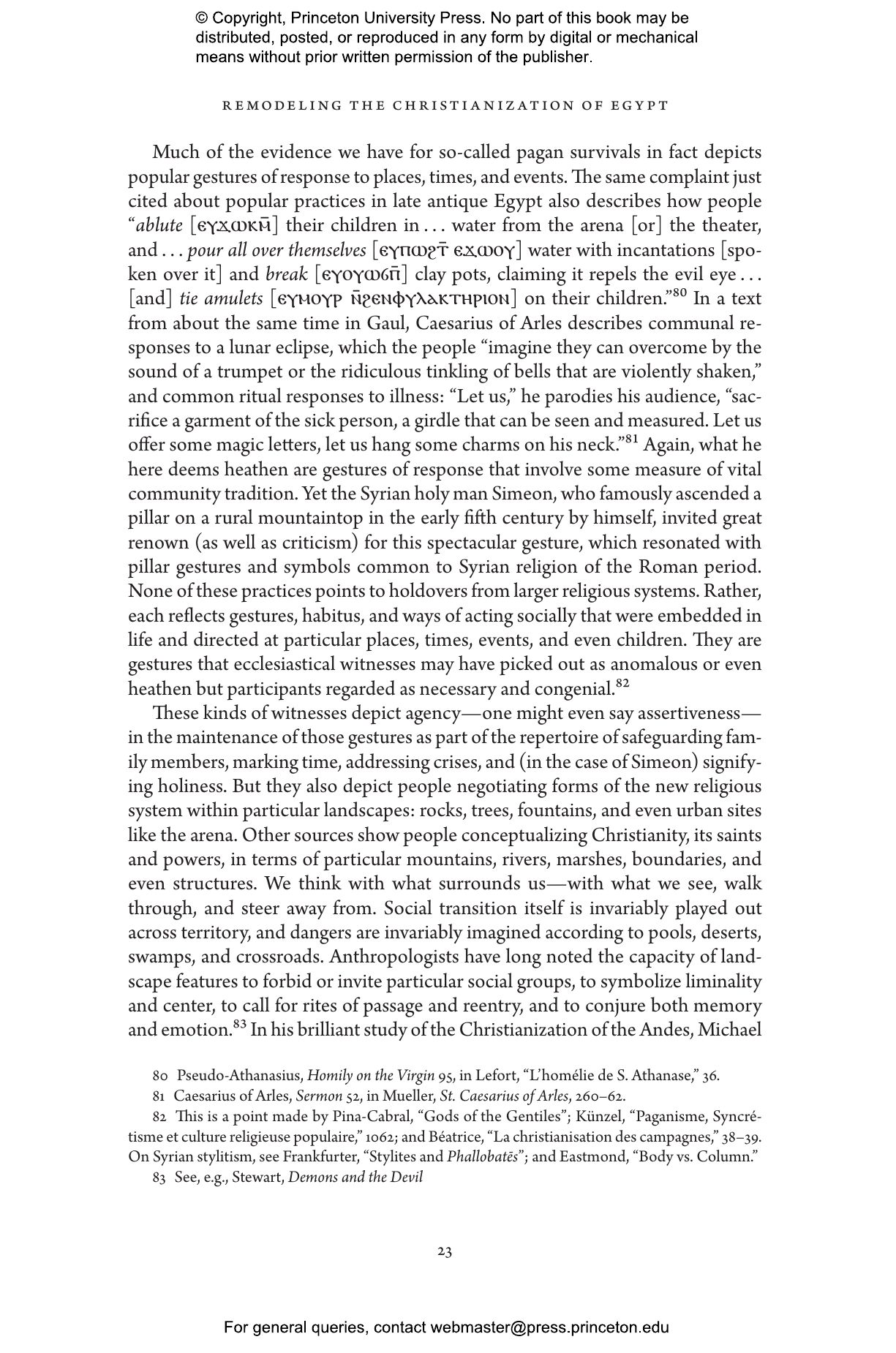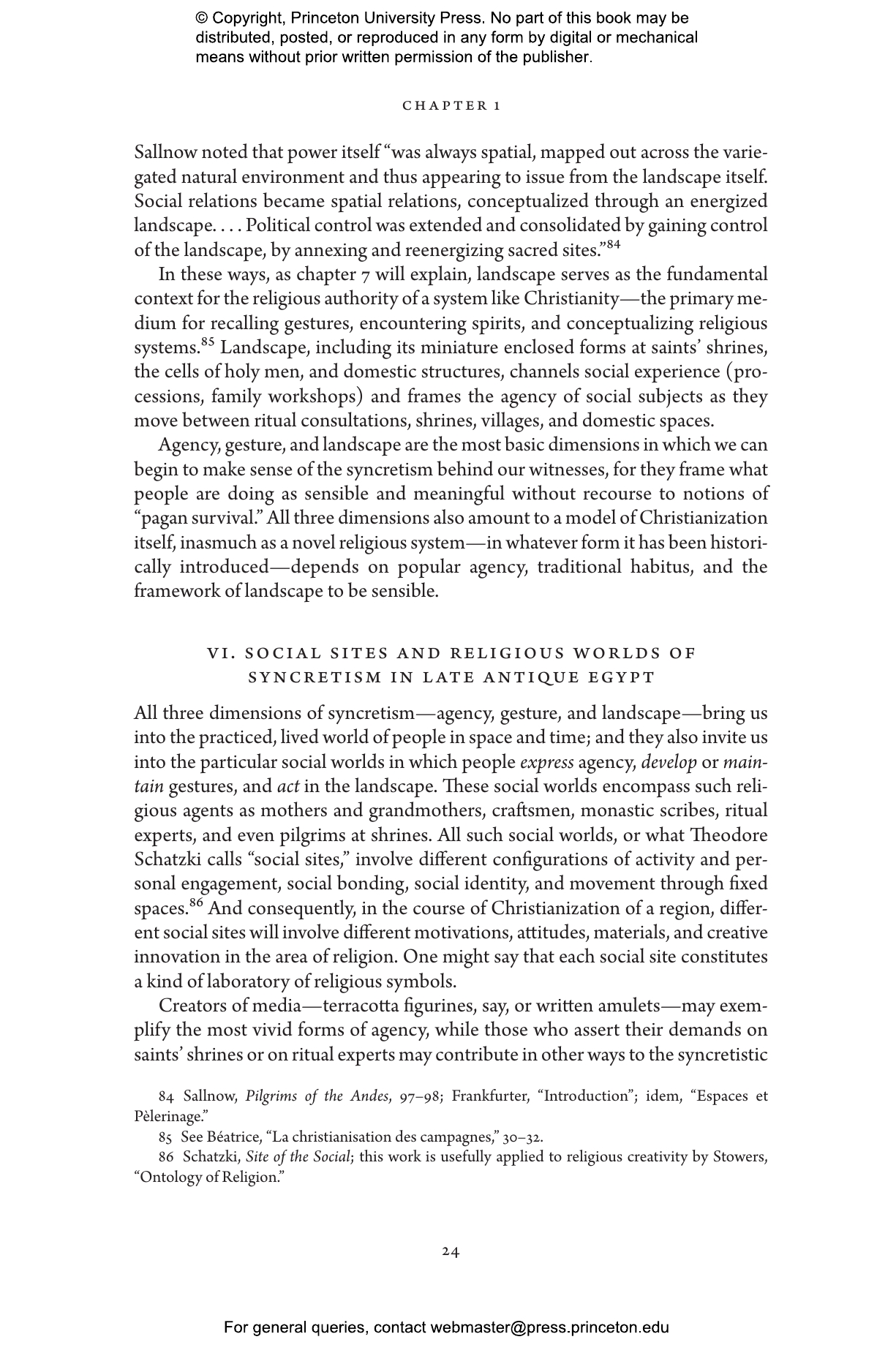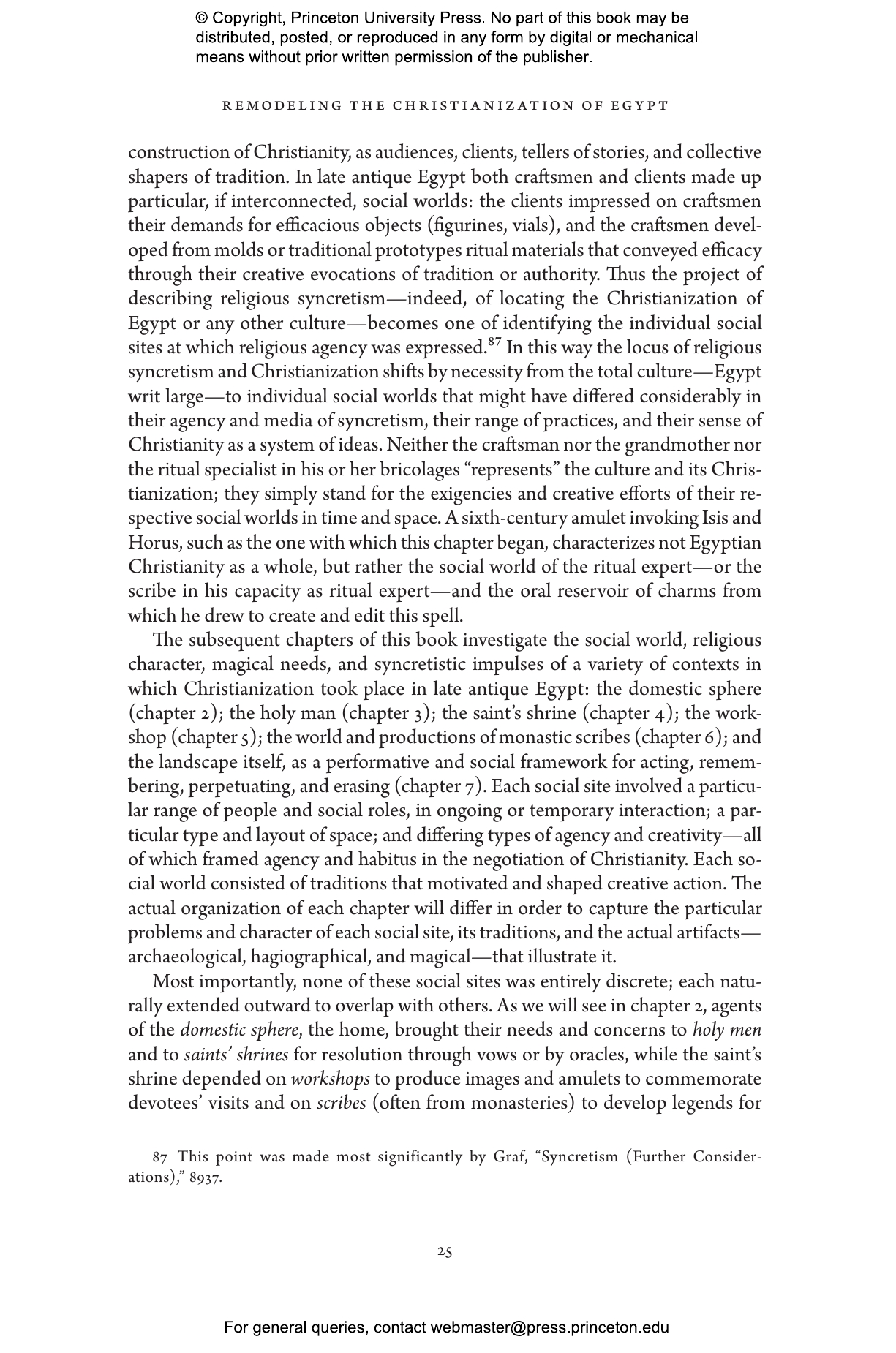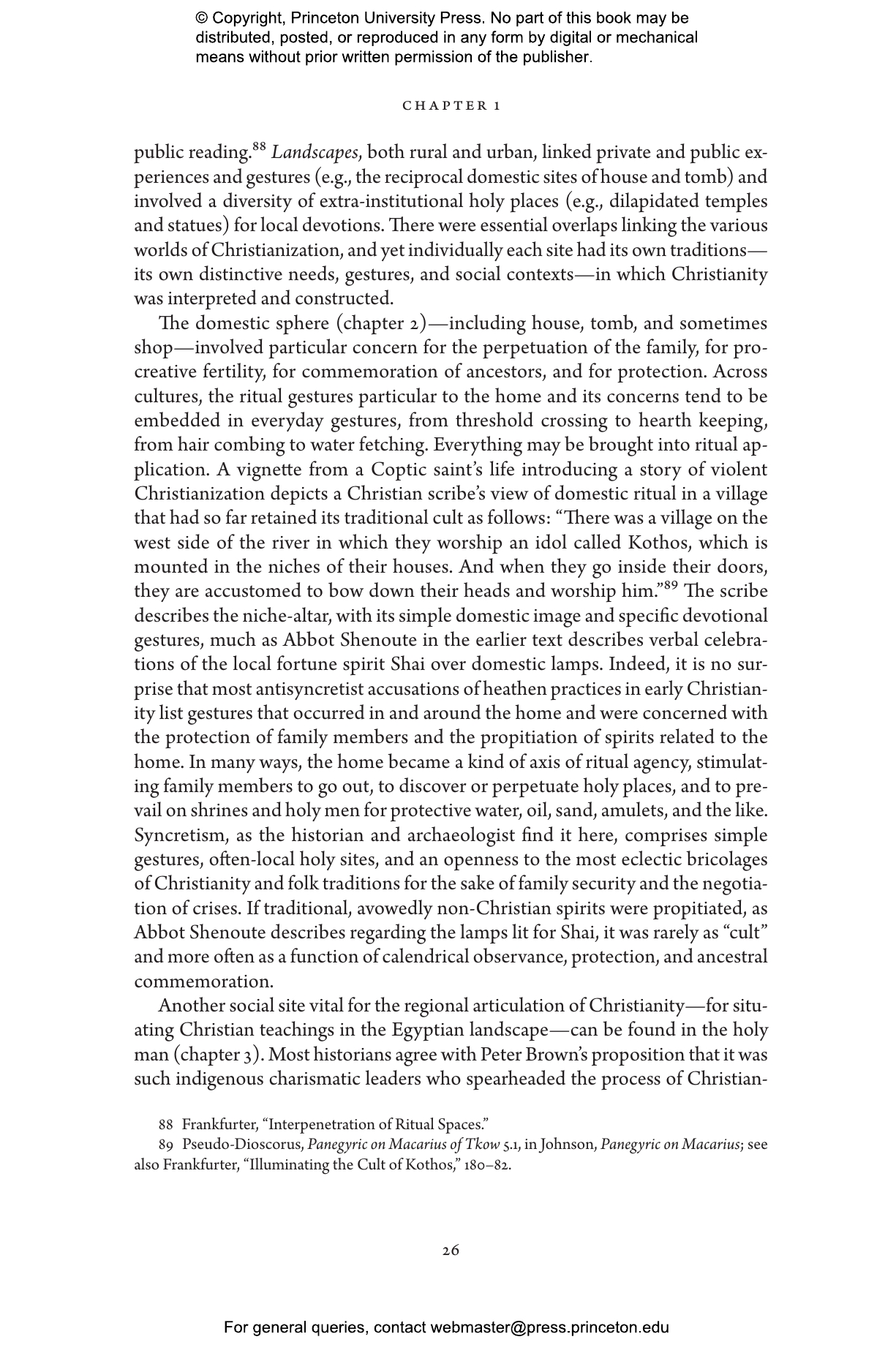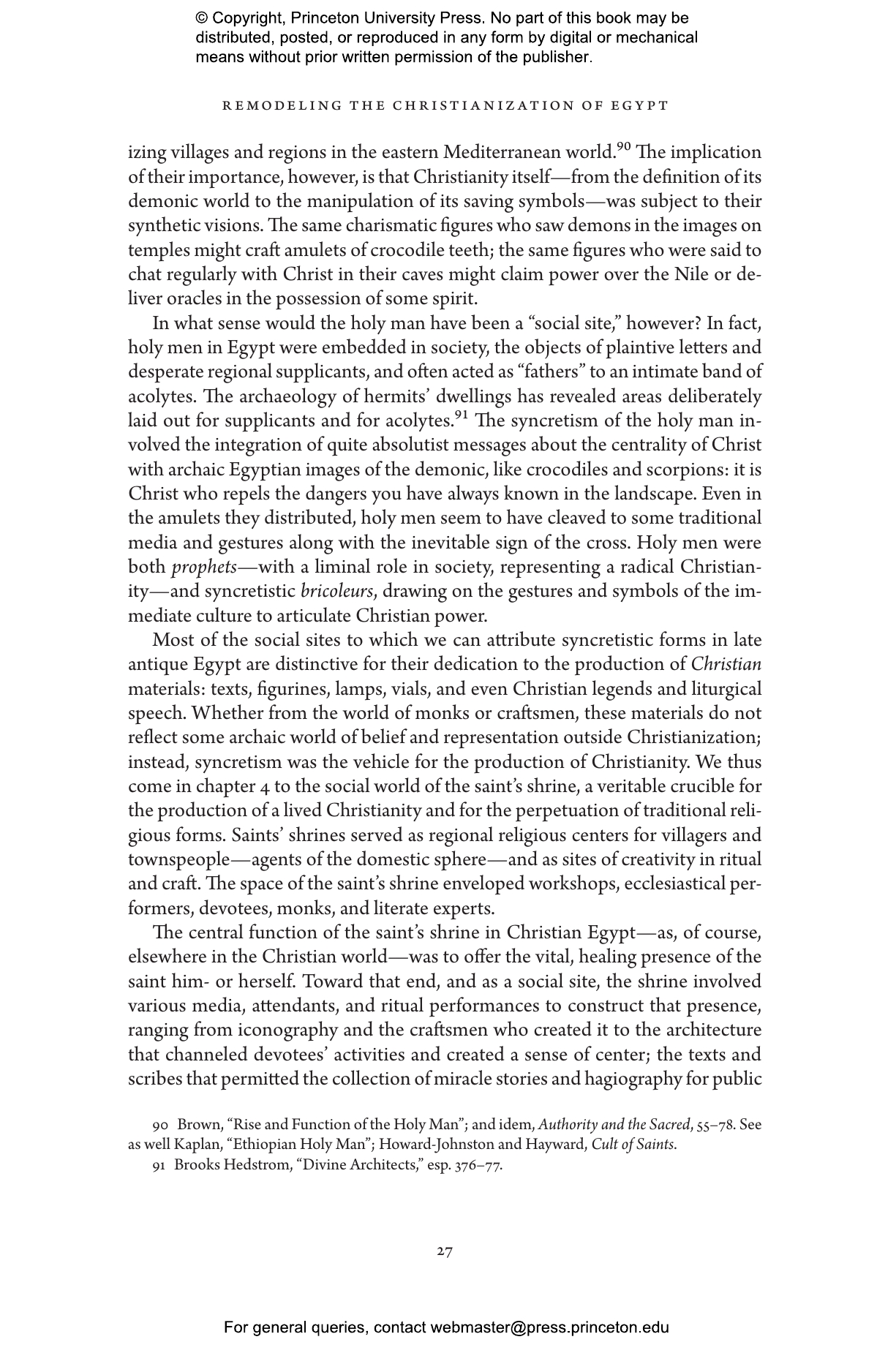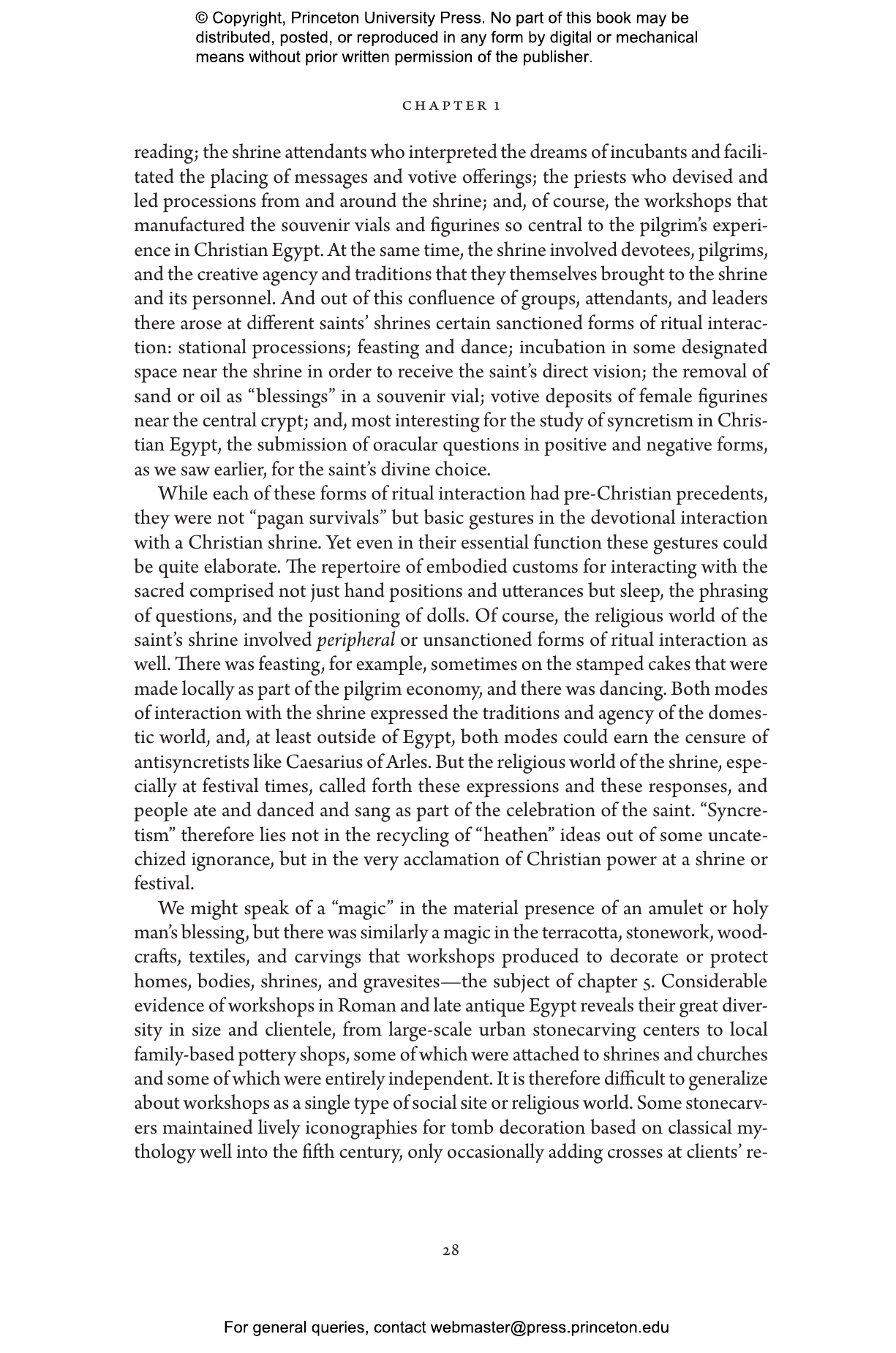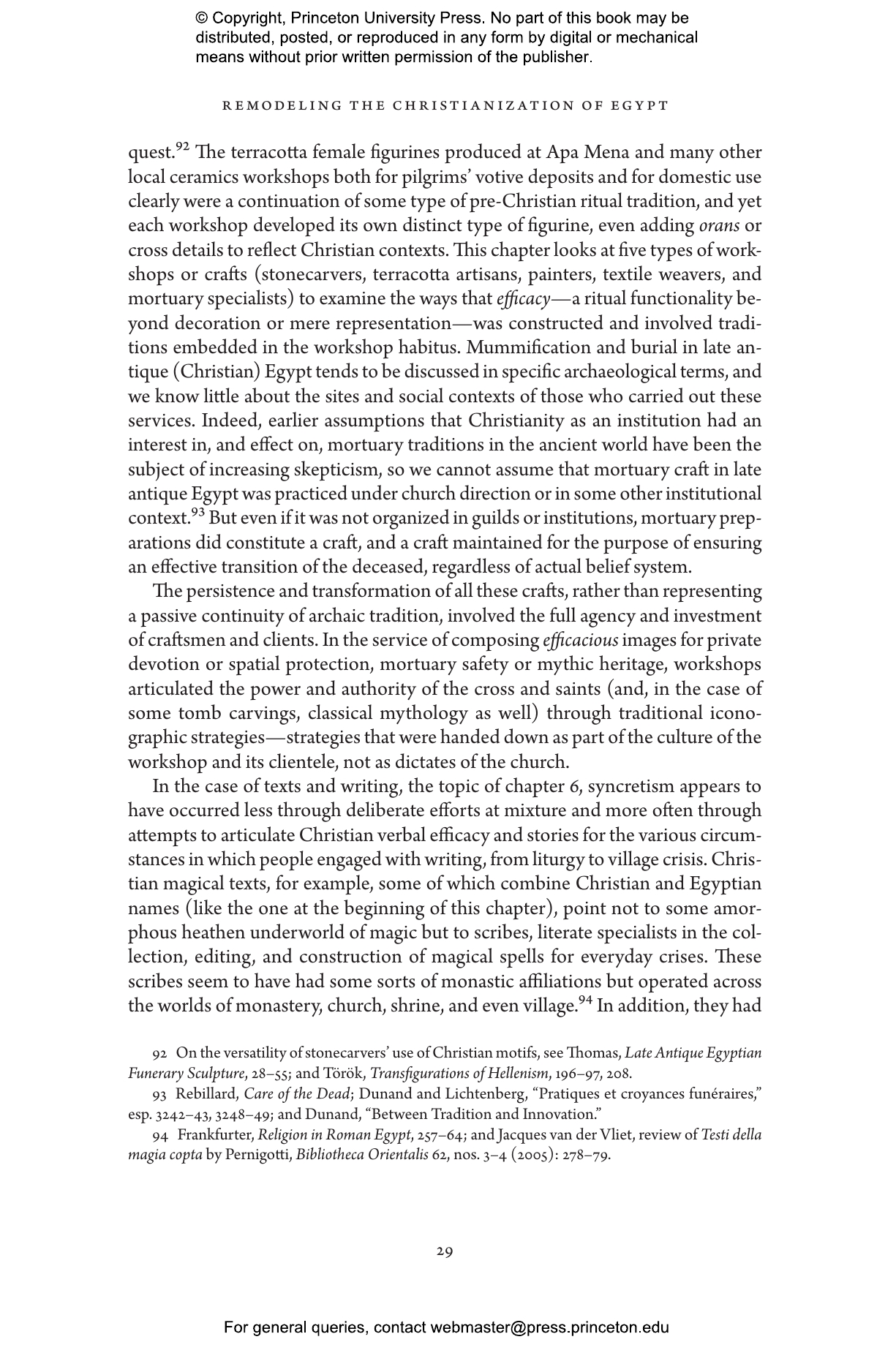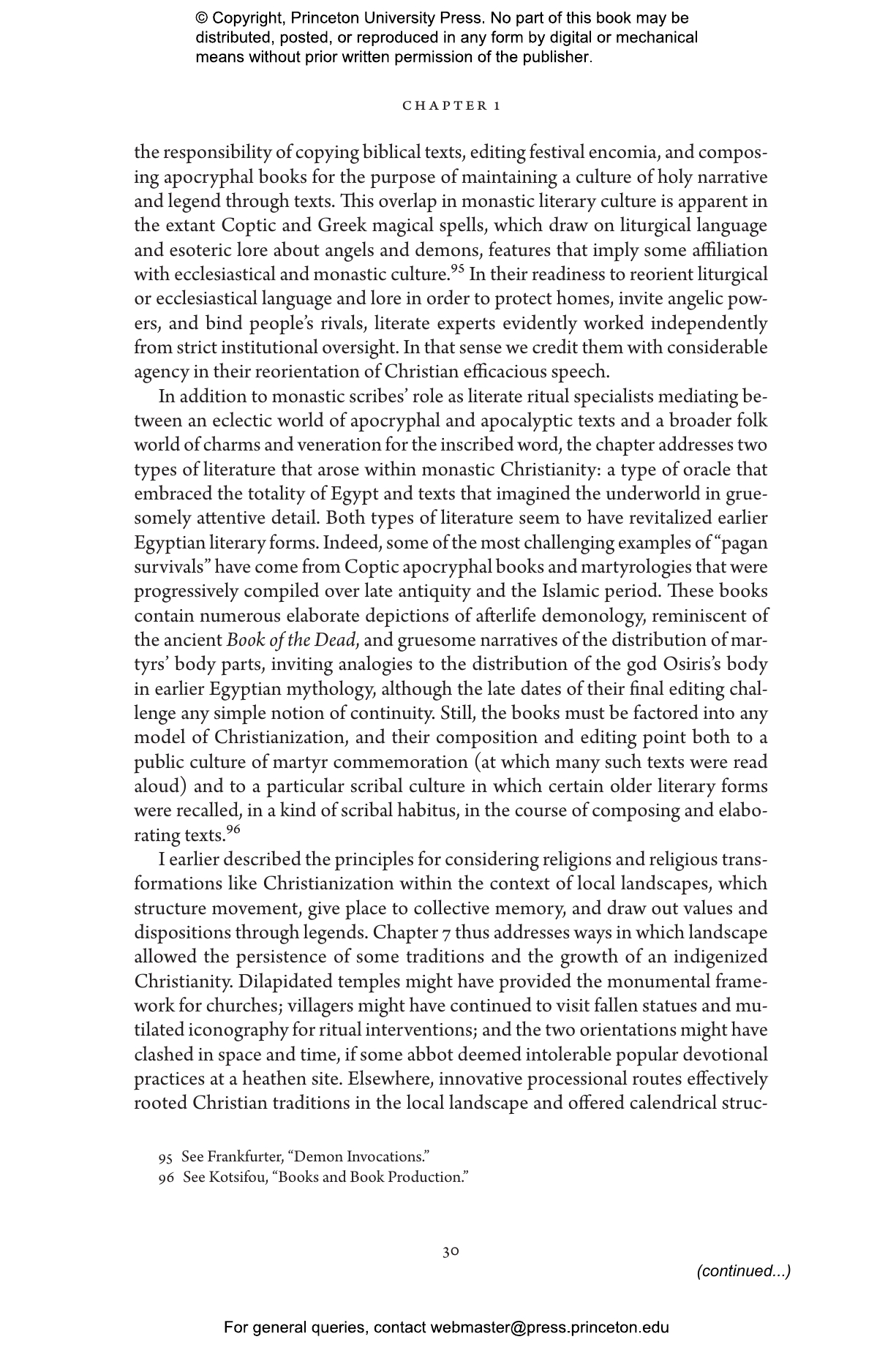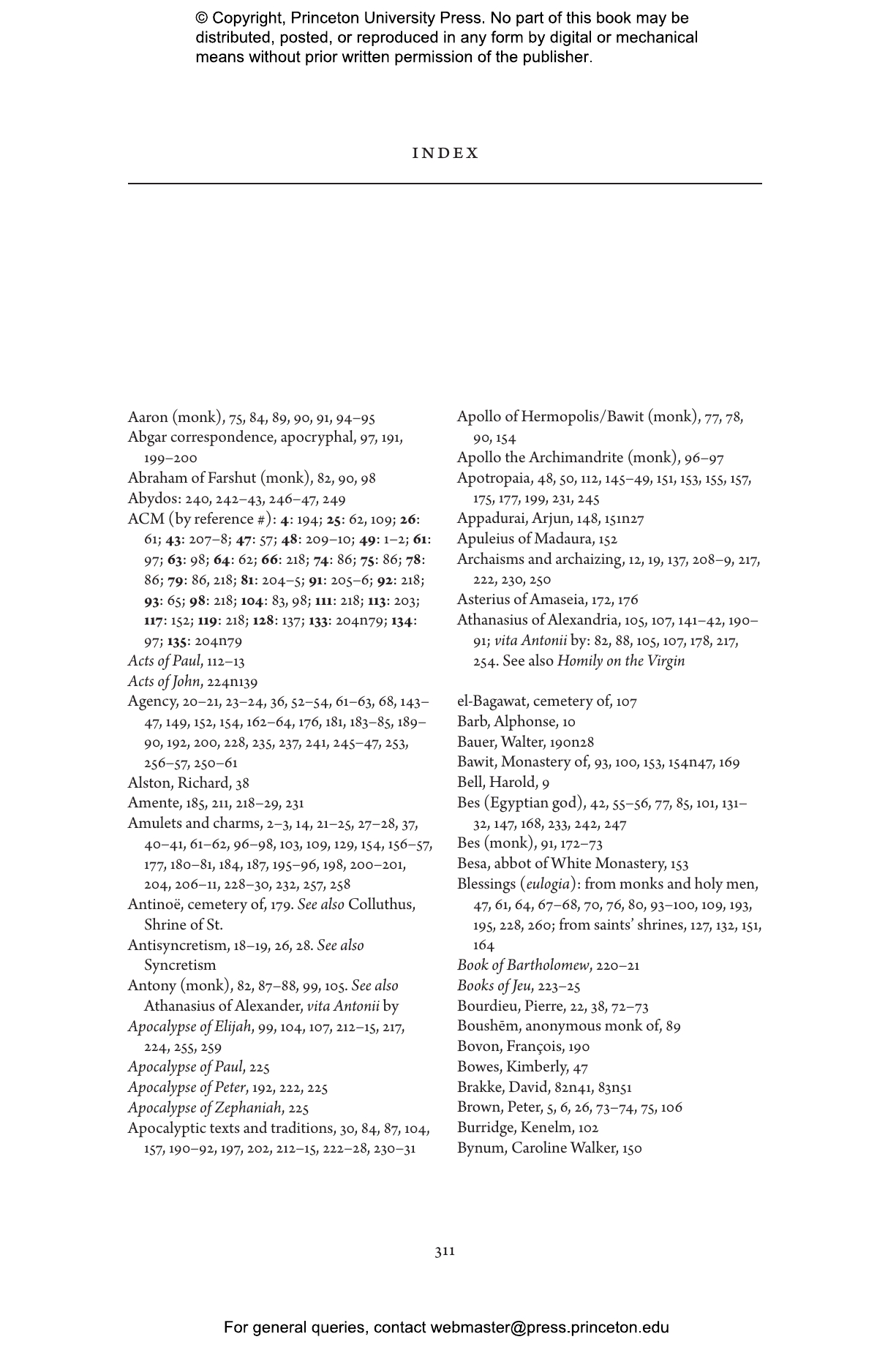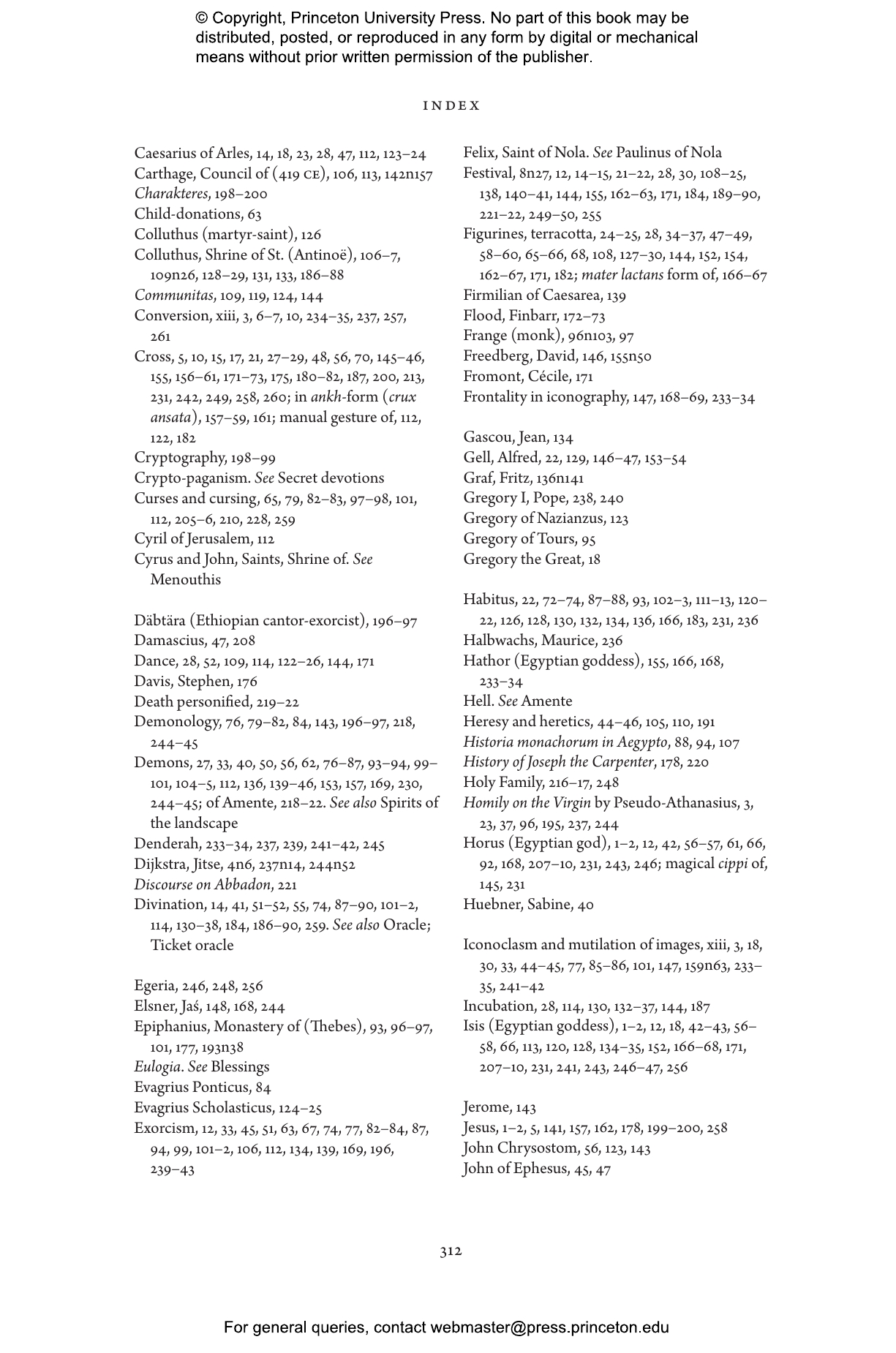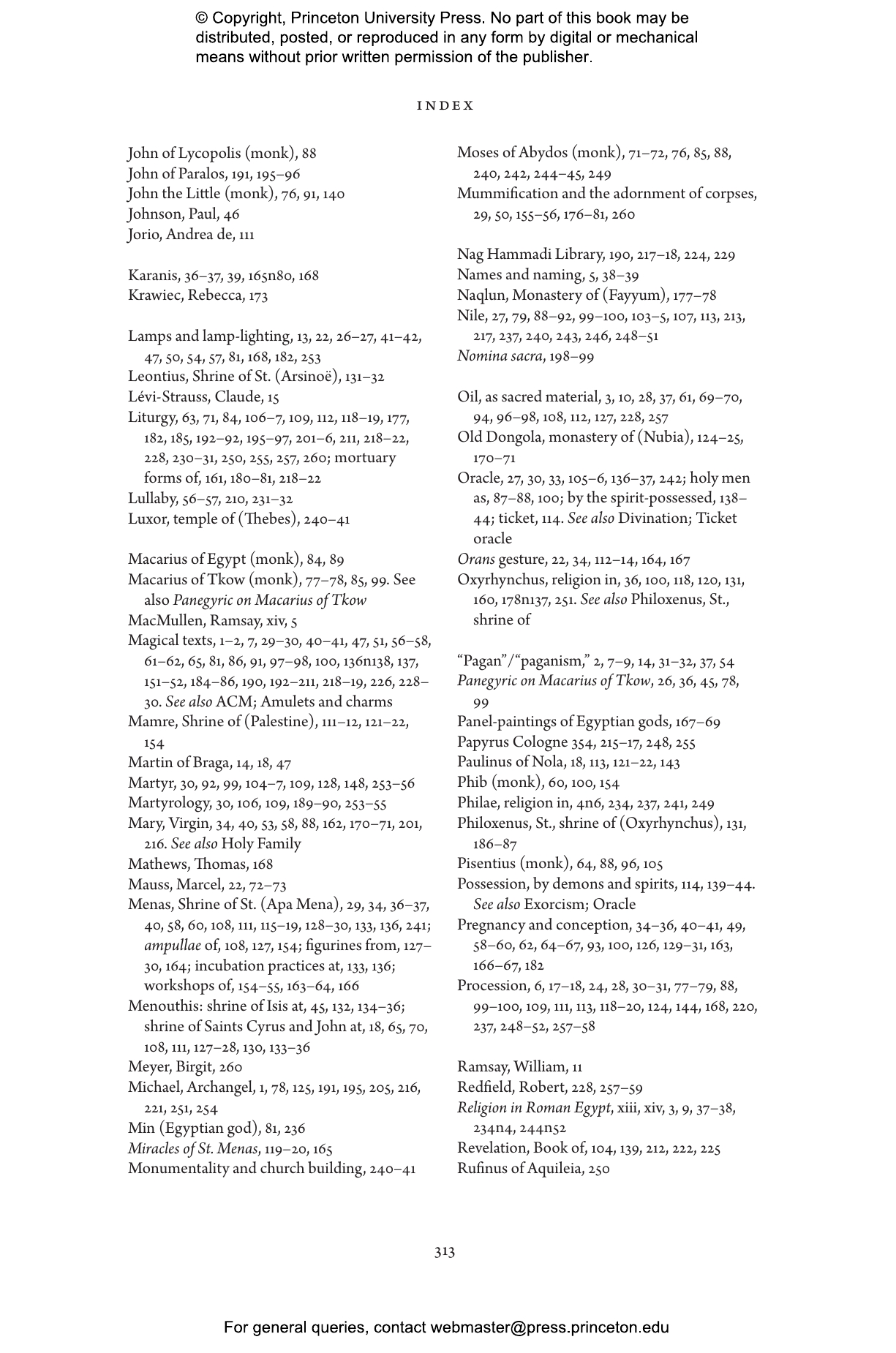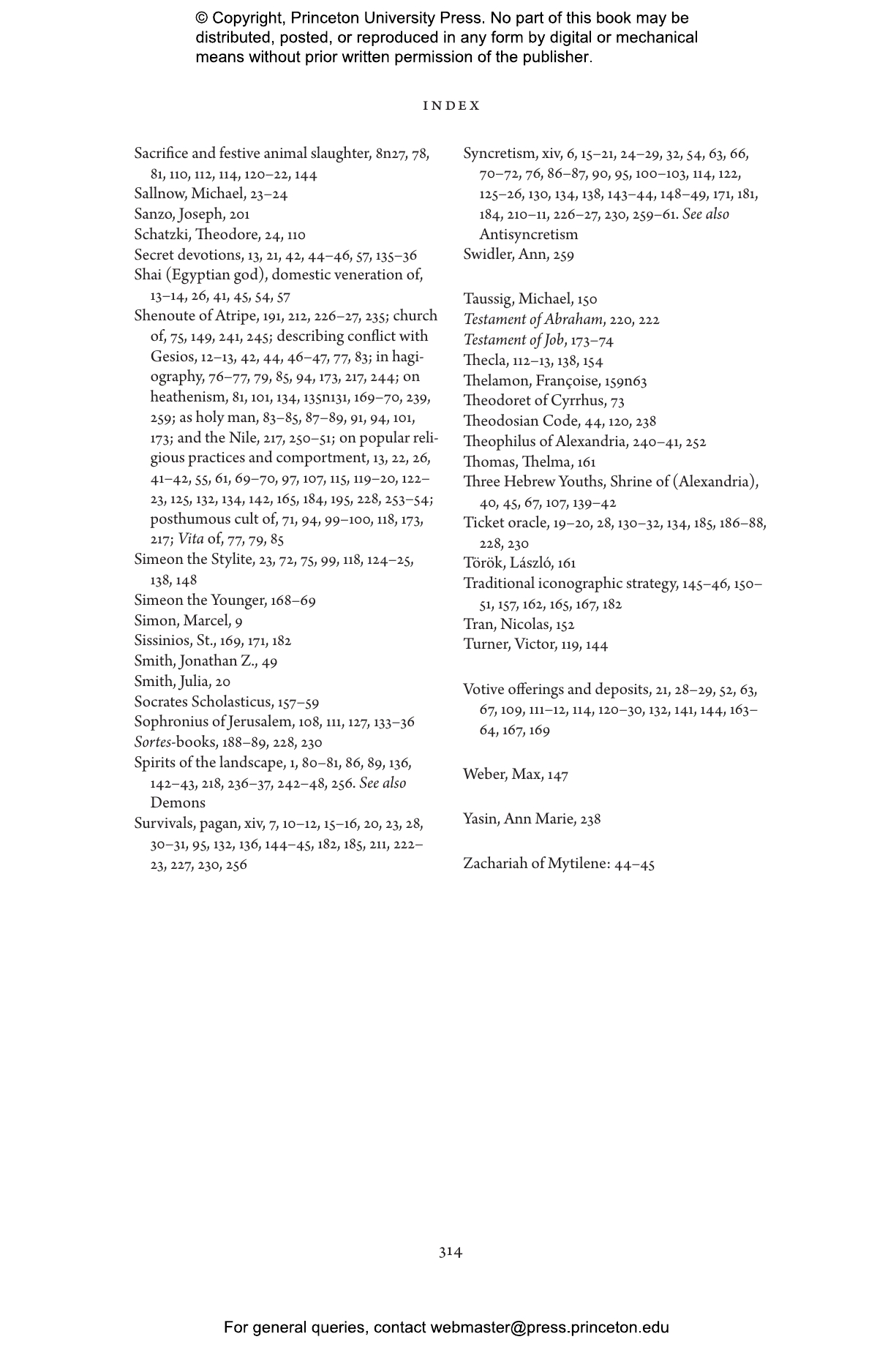How does a culture become Christian, especially one that is heir to such ancient traditions and spectacular monuments as Egypt? This book offers a new model for envisioning the process of Christianization by looking at the construction of Christianity in the various social and creative worlds active in Egyptian culture during late antiquity.
As David Frankfurter shows, members of these different social and creative worlds came to create different forms of Christianity according to their specific interests, their traditional idioms, and their sense of what the religion could offer. Reintroducing the term “syncretism” for the inevitable and continuous process by which a religion is acculturated, the book addresses the various formations of Egyptian Christianity that developed in the domestic sphere, the worlds of holy men and saints’ shrines, the work of craftsmen and artisans, the culture of monastic scribes, and the reimagination of the landscape itself, through processions, architecture, and the potent remains of the past.
Drawing on sermons and magical texts, saints’ lives and figurines, letters and amulets, and comparisons with Christianization elsewhere in the Roman empire and beyond, Christianizing Egypt reconceives religious change—from the “conversion” of hearts and minds to the selective incorporation and application of strategies for protection, authority, and efficacy, and for imagining the environment.
Awards and Recognition
- Winner of the Philip Schaff Prize, American Society of Church History
- One of Choice Reviews' Outstanding Academic Titles of 2018
"Outstanding. . . . The thesis is interesting [and] the evidence effective. . . . Agree or disagree with Frankfurter's central claims, Christianizing Egypt may become a methodological must-read for anyone working in pre-modern Christianity."—Zachary B. Smith, Reading Religion
"Christianizing Egypt is a thoughtful and exceptionally valuable study, with implications that go far beyond either Egypt or Late Antiquity. . . . An excellent book."—Philip Jenkins, Journal of Church and State
"A carefully nuanced and illuminating anaylsis of the mixture of religious traditions in late ancient Egypt, as traditional religions were slowly giving way to the spread of Christianity. . . . Deeply thought provoking."—Choice
"Christianizing Egypt builds on David Frankfurter’s career working on the religious history of Roman and late antique Egypt and his deep knowledge of the Egyptian sources, material and literary alike, from hagiographical texts and sermons (in both Coptic and Greek) to terracotta figurines and amulets. The contribution this book makes to describing, analysing and interpreting religious change and process is very valuable indeed. There is much in this book for those interested in questions of religious change far beyond the confines of late antique Egypt."—Lucy Grig, Times Literary Supplement
"A sophisticated and thought-provoking study of Christianization in Egypt that offers as much to the scholar of religion as it does the historian of ancient Christianity."—Michael Beshay, Bryn Mawr Classical Review
"Frankfurter has constructed a model of Christianization that allows him to read these activities as representative of religious processes writ large while still retaining the nuance and specificity of a particular time, place, and religious sensibility. He argues persuasively."—Dana Robinson, Church History and Religious Culture
"The work nicely demonstrates the extraordinary range of objects, including texts, uniquely preserved in Egypt, and draws together the evidence for study in a compelling and highly readable exposition. F.’s systematic reappraisal of what it was to be Christian and his deep and critical reading of material sources are especially laudable."—Elisabeth R. O’Connell, Journal of Roman Studies
"A deeply stimulating, thought-provoking book which should be on the radar of every researcher of religion in late ancient Egypt."—Dylan M. Burns, Vigiliae Christianae
"Christianizing Egypt is a great, uncommon, and thought-provoking book."—Anne Marie Yasin, Journal of Early Christian Studies
"A rich and compelling examination of processes of religious change. . . . Frankfurter’s book presents a forceful argument for a revision of our approaches to the mechanisms of Christianization, destabilizing what we mean when we speak of a Christianized community or landscape."—Francoise Dunand, History of Religions
"Frankfurter’s learning is wide and deep . . . and his writing is consistently lucid. . . . A rewarding contribution to our understanding of religious change in the late ancient Mediterranean world."—James Rives, ARYS
"Frankfurter has invigorated a line of scholarly inquiry that marries material culture and textual study."—C.L. Buckner, Journal of Orthodox Christian Studies
"Offering a creative and convincing new picture of Christianity in Egypt in late antiquity, this book will appeal to a wide range of scholars in religion, anthropology, and sociology. Every page testifies to David Frankfurter's deep knowledge of an exceptionally wide range of ancient texts and artifacts. And his writing is so engaging and vivid that he makes the religious practices come alive. This will be a very influential book."—AnneMarie Luijendijk, Princeton University
"David Frankfurter has cut through a haze of misconceptions and loose interpretations of evidence to get to a new and greatly improved understanding of how Christianity came to dominate Egypt in late antiquity. His book provides ideas for thinking about the spread of Christianity throughout the Mediterranean world and indeed the processes of religious change and transition as a whole. His attention to archaeology, material culture, and the domestic contexts of Christianity is new, exciting, and extremely important."—T. G. Wilfong, University of Michigan
